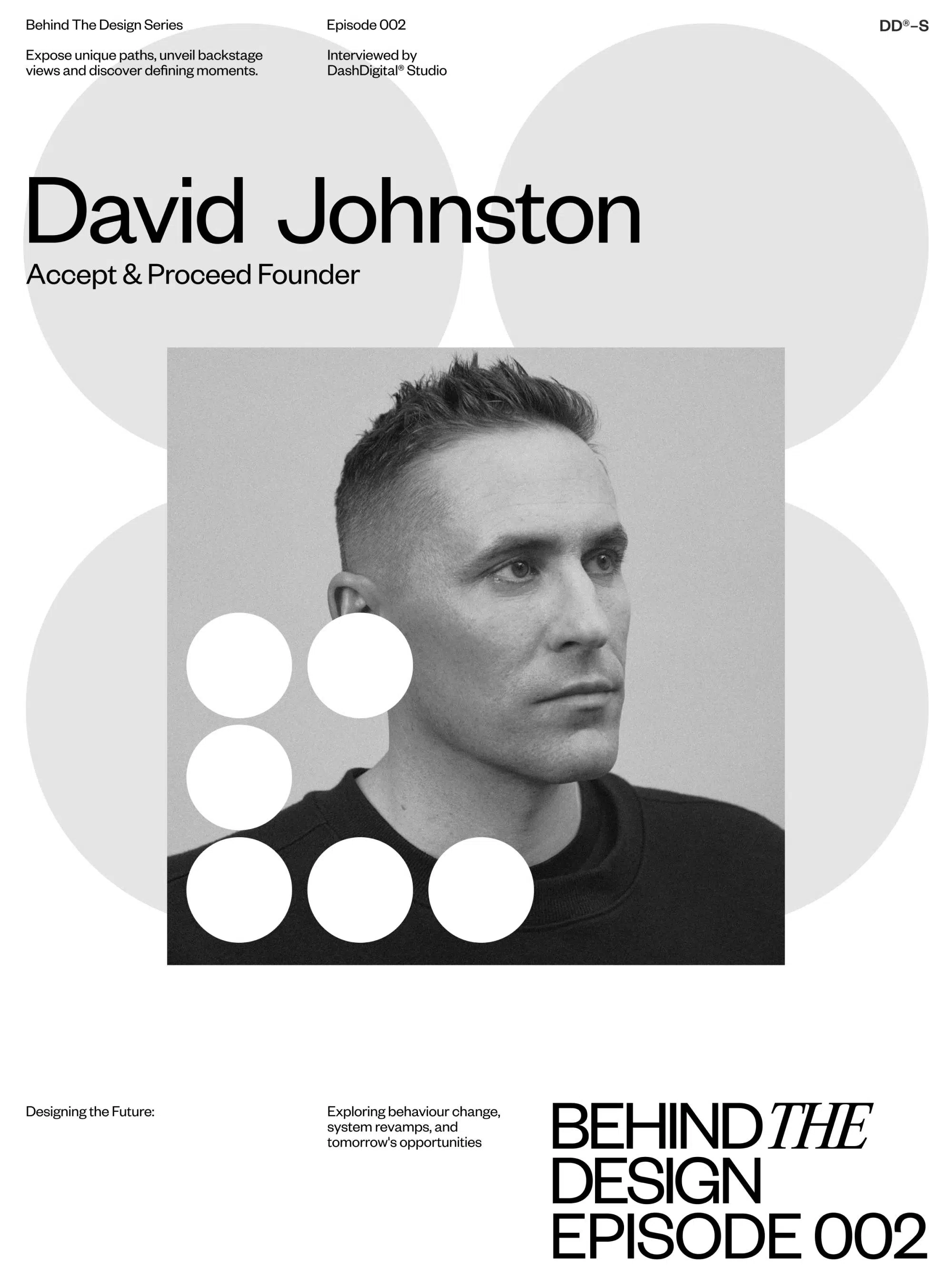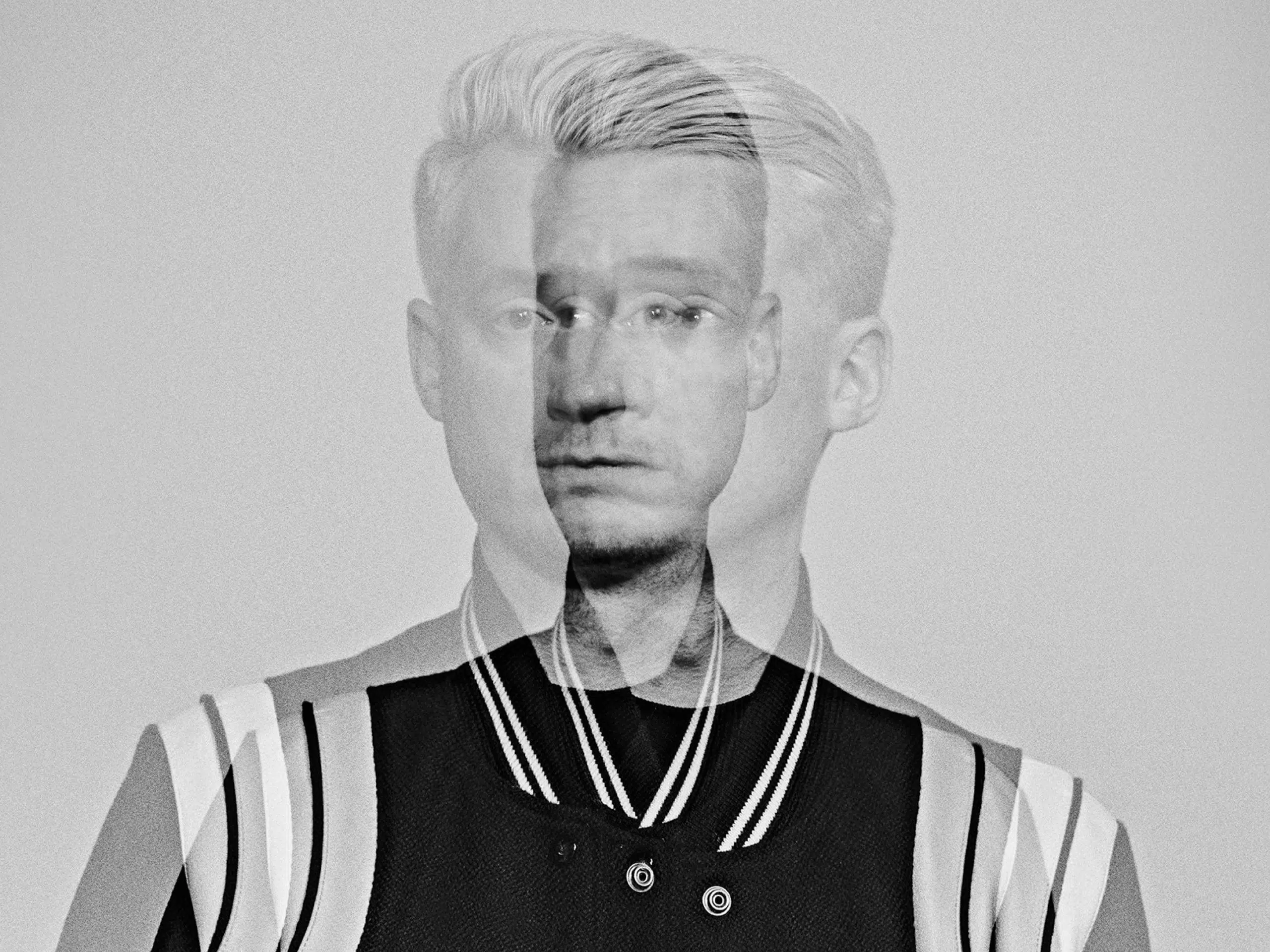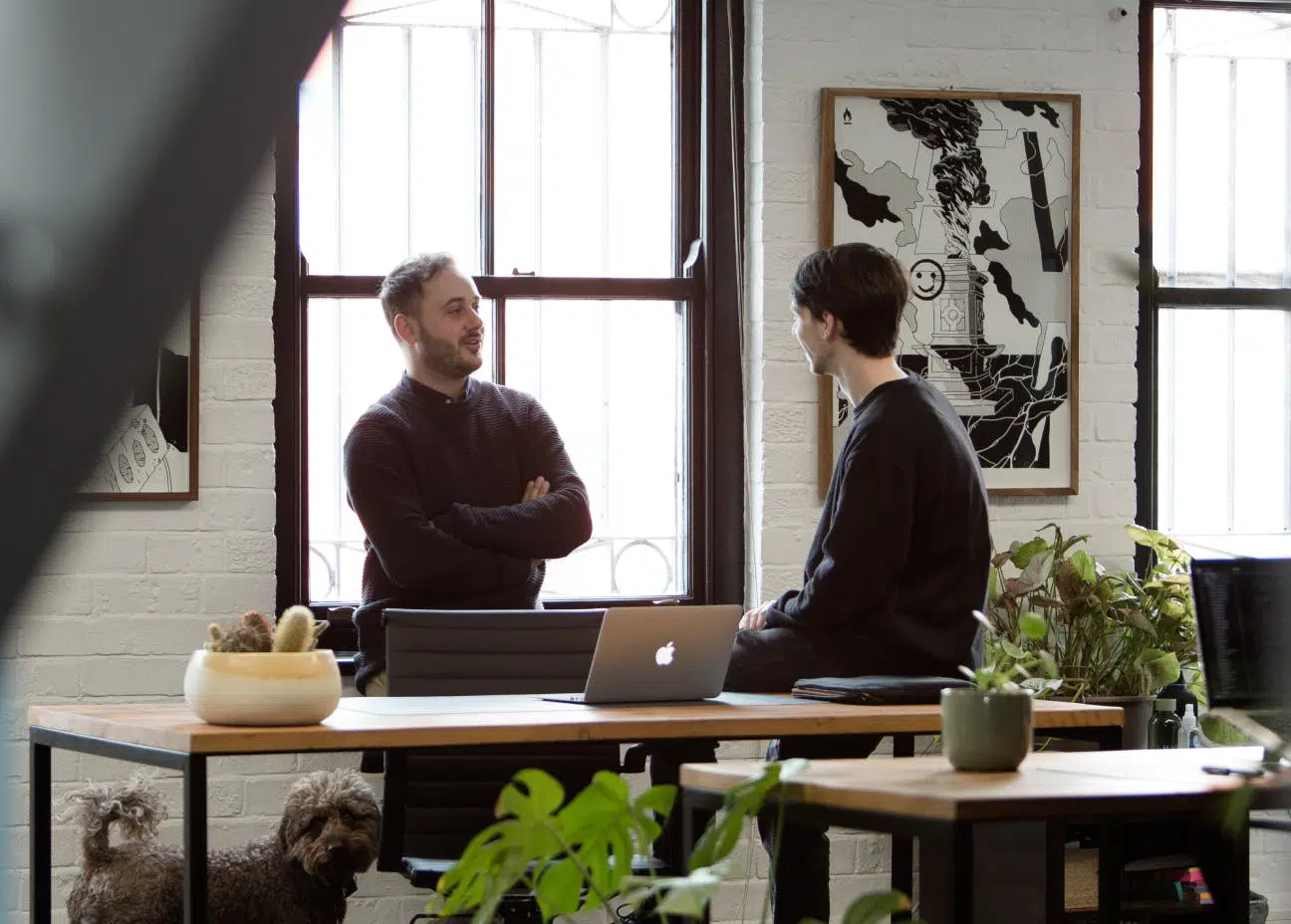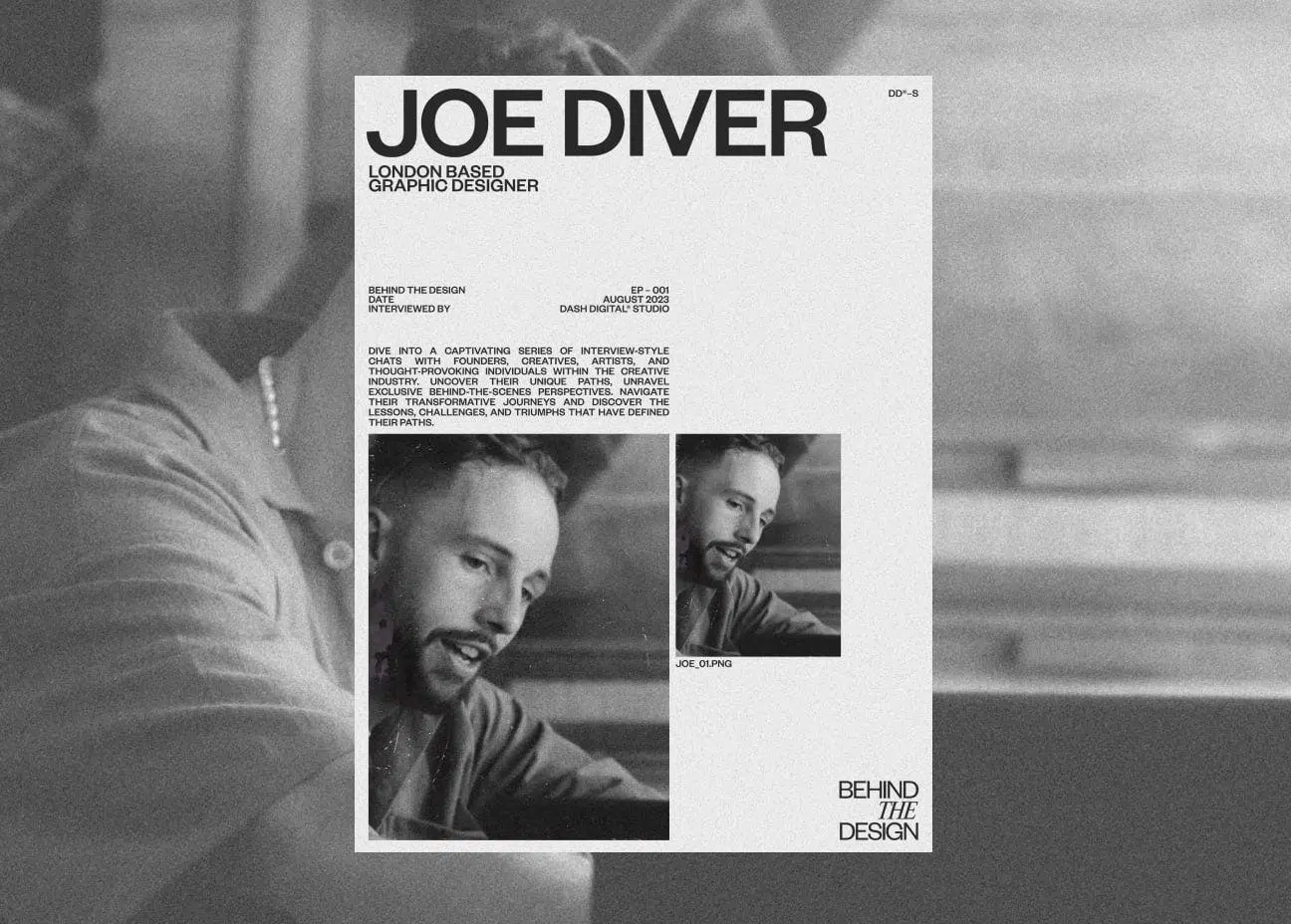David Johnston
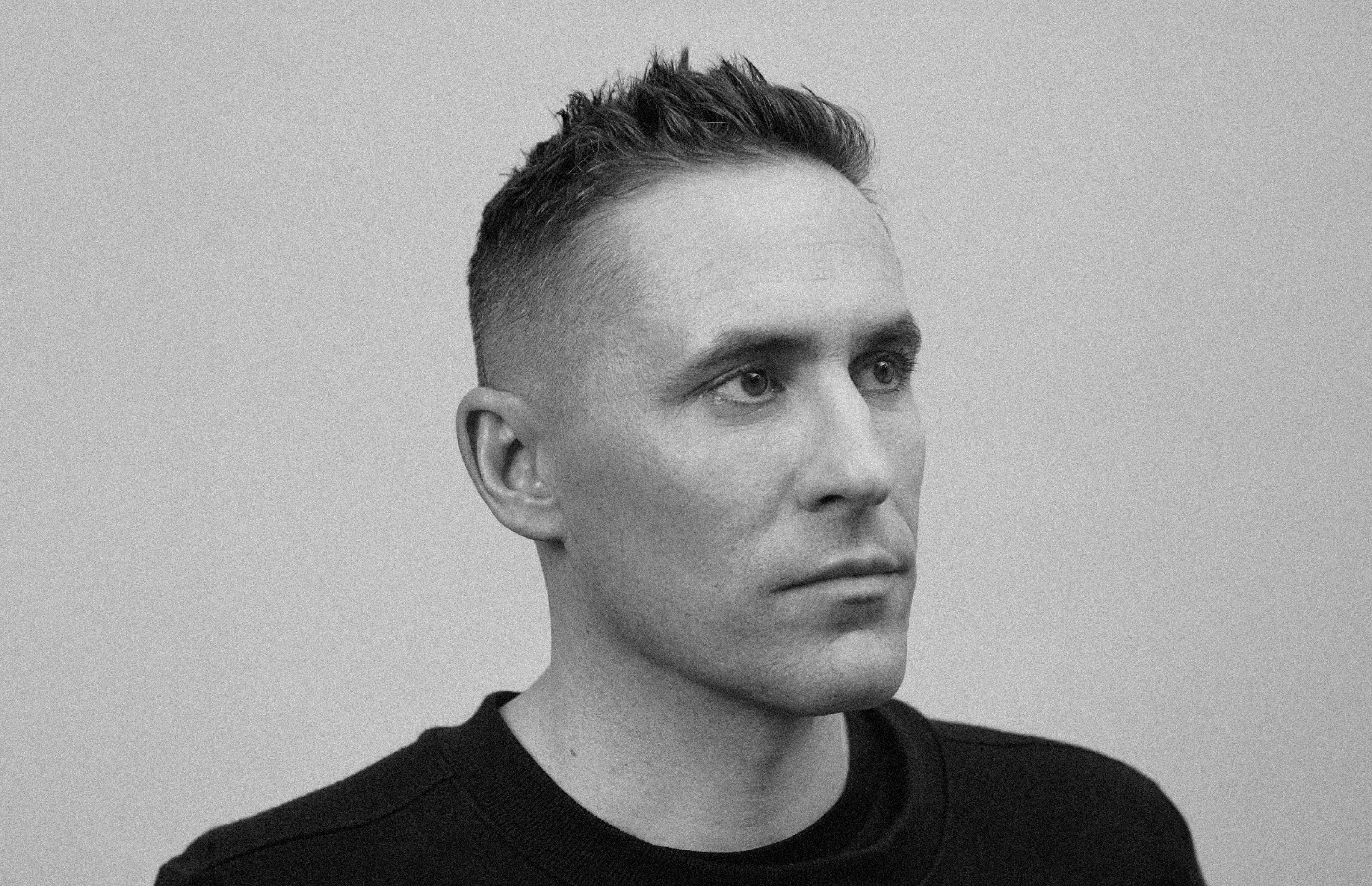
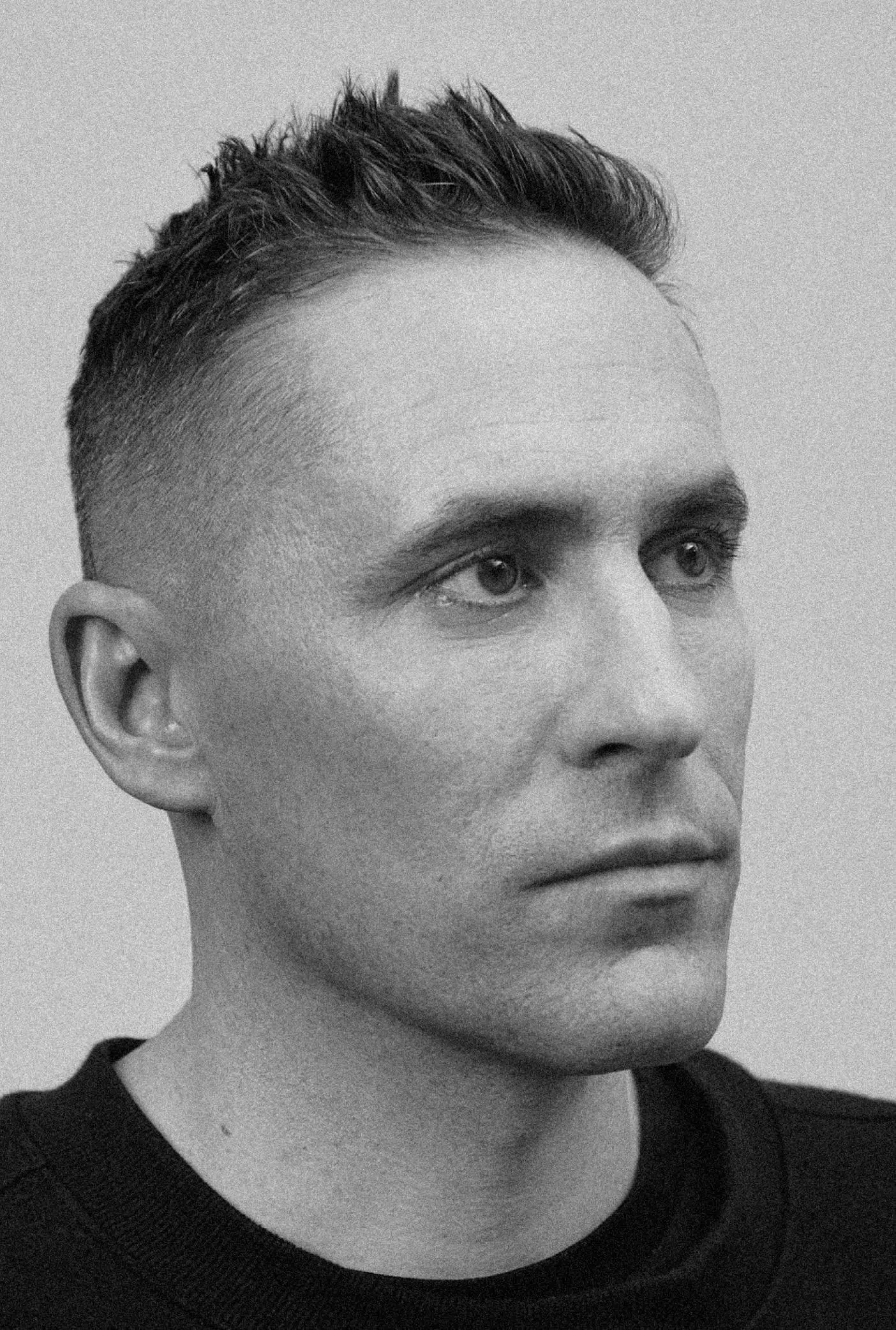
David Johnston is the visionary founder of Accept & Proceed, a creative agency dedicated to forging the path for tomorrow. His remarkable journey with Accept & Proceed has included collaborations with industry giants such as Nike, Google and NASA, further solidifying his role as a leader in the field.
Our theme for today is ‘Designing the Future” – exploring behaviour change, system revamp, and tomorrow’s opportunities. Looking to the future, what excites you most about the opportunities for designers to create positive impacts on society?
You've tapped right into my passion point there, immediately out of the gate. I think it's a kind of necessary dissolving of the illusionary boundaries within the creative sector and actually the world at large, that's starting to be addressed through conversations like this and connection points like this. So I really appreciate the invitation and I'm looking forward to discussing these themes with you.
When I think of the opportunities for designers, it's huge, and I think the stakes could not be higher in this moment: we currently have a situation where the eight billion people alive on this planet are using 500 billion people's worth of hydrocarbon energy.
Many of us are still obsessed with the idea of abundance, but we live on a planet with finite resource so it's not hard to see the flaws in the way that we've been operating, and if I track back through my life, I have been through periods – as we all probably have, alive this far into the 21st century – when you sort of wake up some mornings and you think about the political systems, or the energy systems, or the relationships systems or the food systems, like, take your pick – and there's so many things that seem to be falling apart around us.
But I think simultaneously to that, what's actually happening is the planet is becoming more conscious. We're actually experiencing this sort of shift. So, we have this kind of paradox happening, where if you were to take all of the companies currently listed on the NASDAQ; if the environmental cost was accounted for like other forms of capital, 78% of those companies would be considered completely unviable. That means that 78% of everything around us has to change: everything from the microphone I'm speaking into, to the computers and devices that we're using to connect with each other – It has to change in the way that it's produced, operates, and is marketed to the world.
So I feel that the revolution of brand which is the area that we kind of focus in – but everything's an application of brand when you think of it these day – I think the revolution of brand and media and communication is absolutely necessary in terms of the evolution of consciousness, and people who create media and brands and communications have got a responsibility to really think about what they're actually creating. They've got to get out of the mindset of thinking that they're passively reflecting culture, because what you choose to create is very, very important in this moment. I think that comes with this responsibility as a designer to think about what you're doing, why you're doing it, who you're doing it with, what you're doing it for.
Because ultimately, we're existing in this moment where It's kind of happening in a backdrop of fear and insecurity and negativity: we're distracted, essentially, from what's coming down the track. The media is basically programming our collective consciousness to not be aware of what's happening and facing us and how we need to change. Therefore, the brand systems, the communication systems, the conversation systems, all need to have integrity – and they all need to be created in a way that will have a positive effect on the future.
When you think about a brand system or the design work that you actually create you're actually bringing into the world language and symbols which fundamentally change the way we behave in the world around us. That's a superpower – it's a dark art, and it comes with a responsibility. So I really think the opportunity and the responsibility around the way that we operate couldn't be bigger, and it comes at a very high potential cost if we don't start thinking about the cause and effects of our work in this moment.
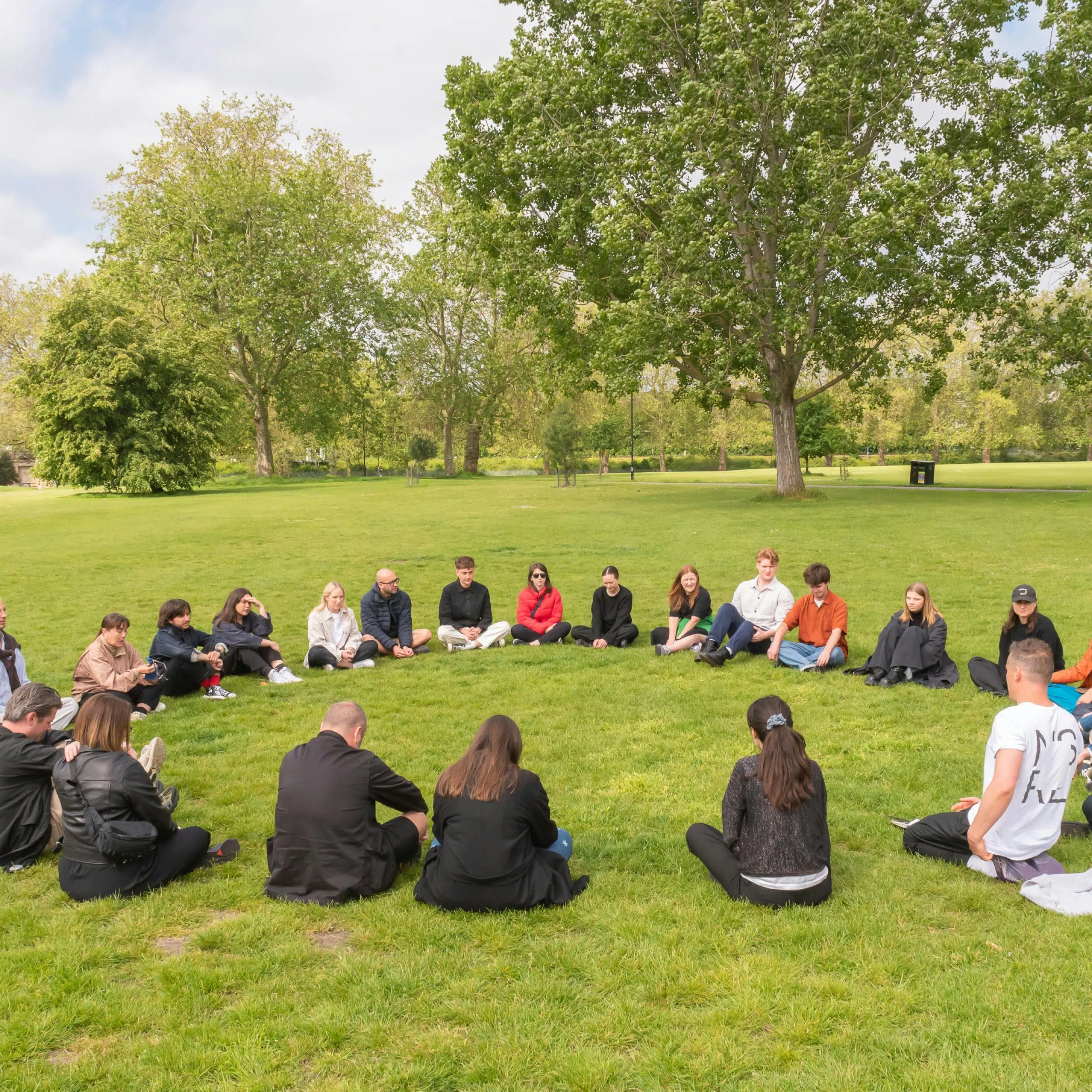
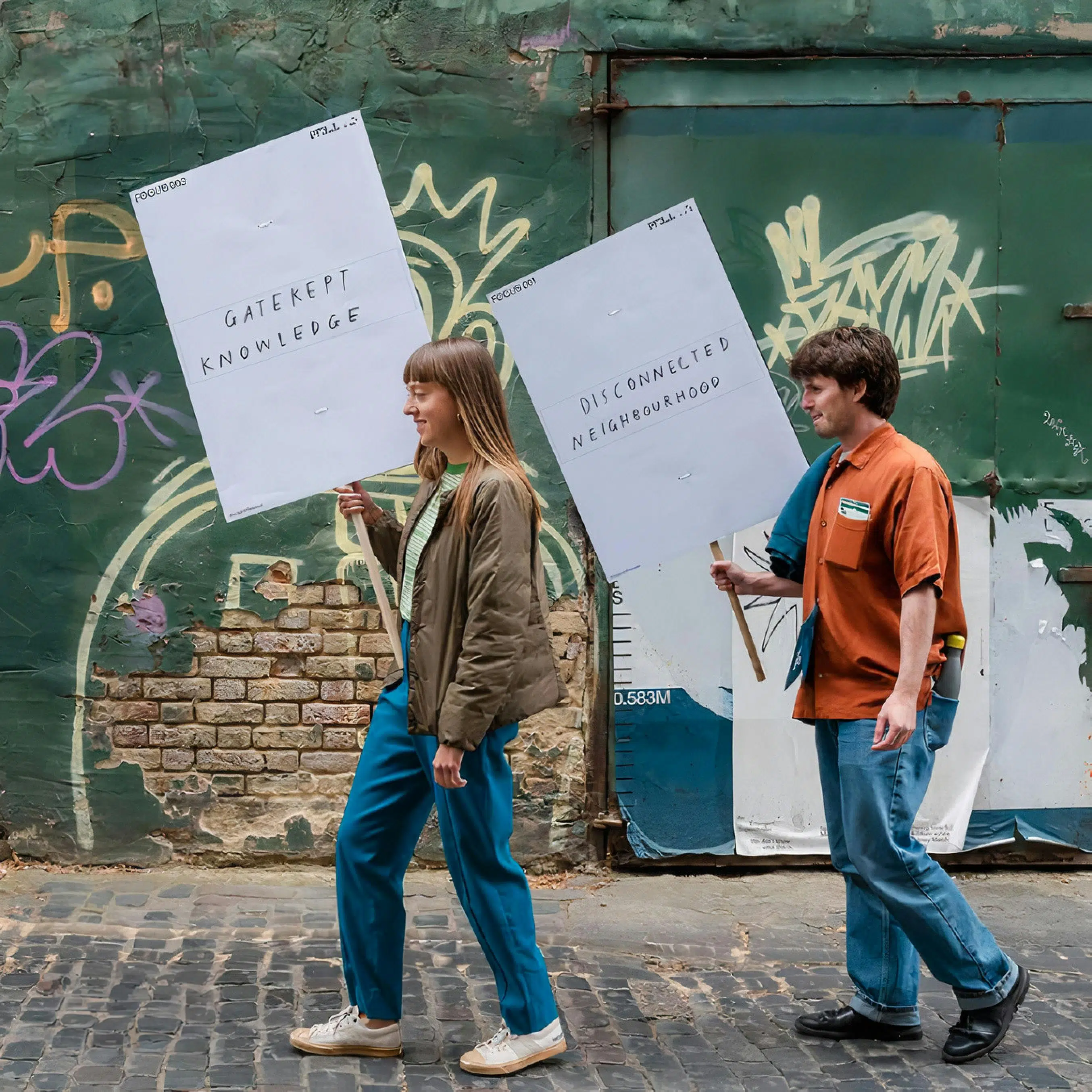
That’s very true. I think design has the power to initiate conversations – it ultimately leads to positive change. But I guess it needs collaborative effort among designers and communities. So how do you think we can make sure there’s collaboration between designers, individuals, policymakers and other stakeholders to drive this change?
There's a few things within that as far as I think about it. I saw a brilliant diagram recently that was an upside-down triangle. The top part of the triangle was the people that make policy – the legislators. So they have the biggest power in the world because they tell businesses what to do. So if you imagine a sort of tiered, upside-down triangle you've got the legislators at the top that make policy that affect the businesses, the businesses affect the communities, and the communities affect the citizens. So you have this sort of diminishing agency in the world, the lower down that chain that you get, but you can actually hack that system and there's various different organisations around the world that are exploring this way of kind of going in through community.
If you think of certain activist groups, they’re basically amassing community to change legislation. They're kind of going in at that third rung on that diagram I described in order to be able to circle back up and change the policy makers, and there's incredible examples of that. The g0v (pronounced “gov zero”) case study in Taiwan I found absolutely fascinating, where they cloned the governmental website and basically open-sourced the opportunity to be able to upvote or downvote government policies. The country en masse engaged with this, and this was something that was not approved by the government of course. In that moment, you had an opportunity to either move the conversation forwards or – what has traditionally happened – to basically clamp down. Thankfully, the Taiwanese government did engage with the g0v movement, and in fact invited them in, and they're now consultants and some of them sit within the government.
I think this is an incredible example of a rise in citizen thinking: as an individual, as a citizen, you actually have more opportunity than you think sometimes. I think breaking out of this kind of consumer story, this kind of narrative that tells us that we're individual humans, and we have only the agency within the world that we are allowed, rather than the full spectrum of our creative minds and our actions, to be able to individually and en masse affect the greater whole.
But there's also companies that can affect legislation, of course, because corporations transcend the geographical borders in which the countries and the legislators operate. So if you're a global system – and this is fraught with issues of course – you can often affect the way the legislators work.
I think all of it, for me, comes down to your individual perspective. The biggest responsibility, I think, is to work on yourself – the inner workings of yourself. What happens on the micro happens on the macro, and what's happening on our planet is down to what's happening within us. There's kind of a reflection on who and what we are, which is having a very negative effect on the planet. So I think that it kind of starts at home: if you want to affect the planet, you need to really think about your thoughts. You need to think about your actions. You need to think about what's driving those. And then en masse, I love this metaphor of, “if you just look after your jigsaw piece”, then the whole jigsaw will kind of emerge as one, if everybody's doing their bit. I like that because it doesn't feel overwhelming – you just affect the things you can, around you and within yourself, at any given moment, and then we're off and running.
My biggest opportunity is to have a positive impact through our partnerships, through the projects that we do, and, of course, through inspiring the team through having a mission to come to work for.
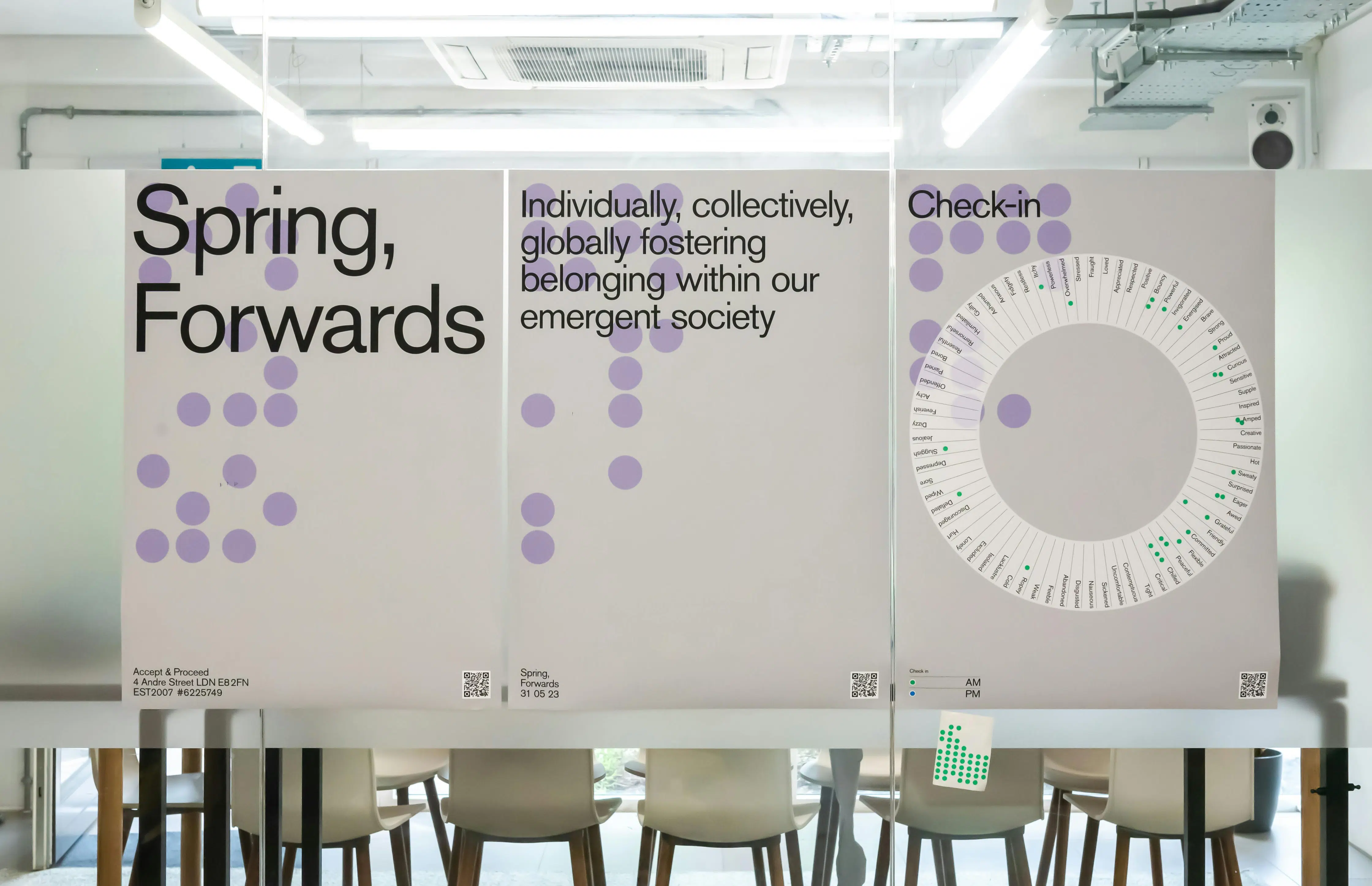
I think that’s exactly right – I think if everyone is just held accountable for their personal decisions, collectively it will make a great impact. I think there’s also been a shift in the way consumers interact with brands: I think consumers expect a lot more transparency these days. They want to make sure they’re being ethical in their sourcing of materials, they want to make sure that there are sustainability decisions happening, and I guess they want to make sure that their business decisions align with their personal values. How do you think we can shift or prepare the next generation of designers to tackle challenges for the future?
I do think we have to go back to education in many ways. I think there's a glaring lack of diversity in the creative sector that can only be addressed if we go back literally to primary school and start opening up the opportunities at the earliest stage within individuals to say, “Oh, I like the sound of that! I think I can work within that realm…”. But if you don't see it, you can't be it, right? So unless you're actually going and speaking to kids at the early stages, you're just never going to diversify as we need to in the creative sector and inspire a kind of new generation. Collaboration, diversity of thinking, different perspectives, and background: they are all the things that we need for the next generation of the creative sector. and for the most impactful work to be created. But I do think that you can only affect where you're at – so, yes, I can go and speak at a primary school or a secondary school and start to make people aware, but my biggest opportunity is probably to have a positive impact through our partnerships, through the projects that we do, and, of course, through inspiring the team through having a mission to come to work for. I think deep down, nobody really wants a job to just occupy his or her time. I think that we want a mission that inspires us, and there's huge opportunities in this moment for missions that inspire us.
So, when we think of the next generation of designers, we have to also think of our current role as kind of incumbents within organisations to be setting out the framework that will inspire them. Setting out the framework that is something they want to give their life to, really! The company that is worthy of them, and that they are worthy of, in order to be able to go and live the most fulfilling life that they possibly can.
I think that being a creator is an incredibly rewarding career path for any, that would like to kind of lead that way, but at the same time it can be incredibly discouraging when you realise that you're using your skills, your attention, for things that don't align with your values. So I think you're right: I think that companies that align with our values are the clearest opportunity to inspire society at mass and inspire the future generations of designers.
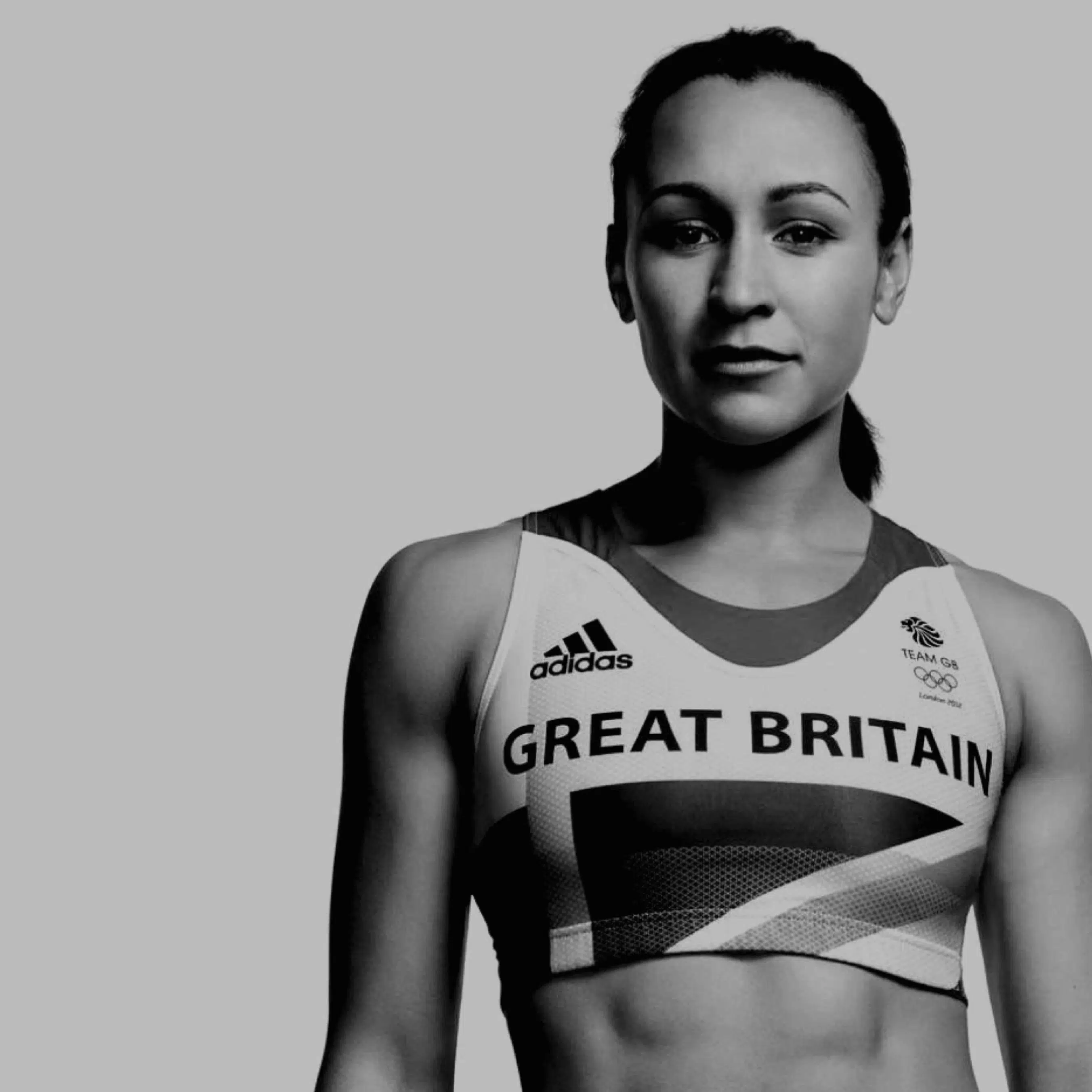
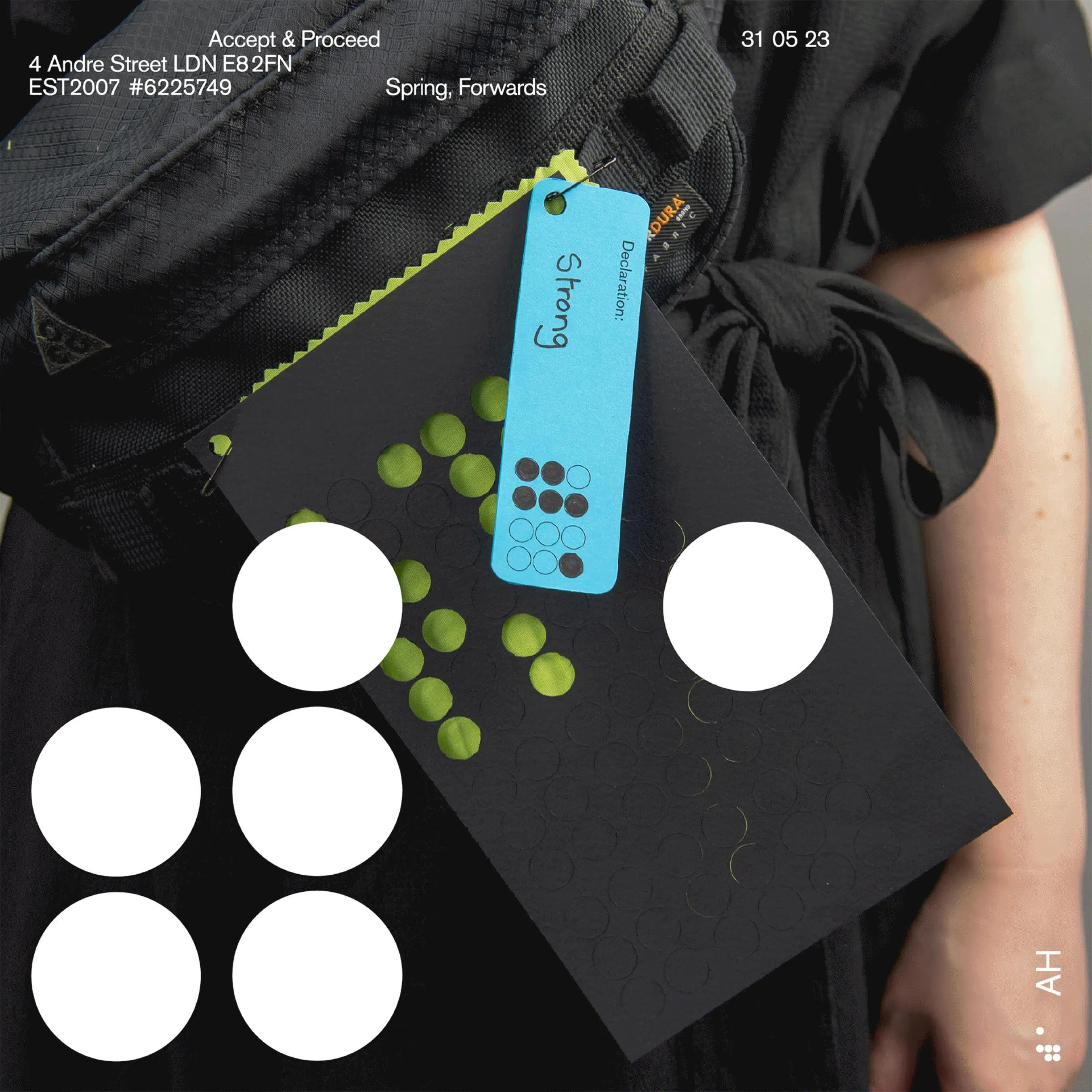
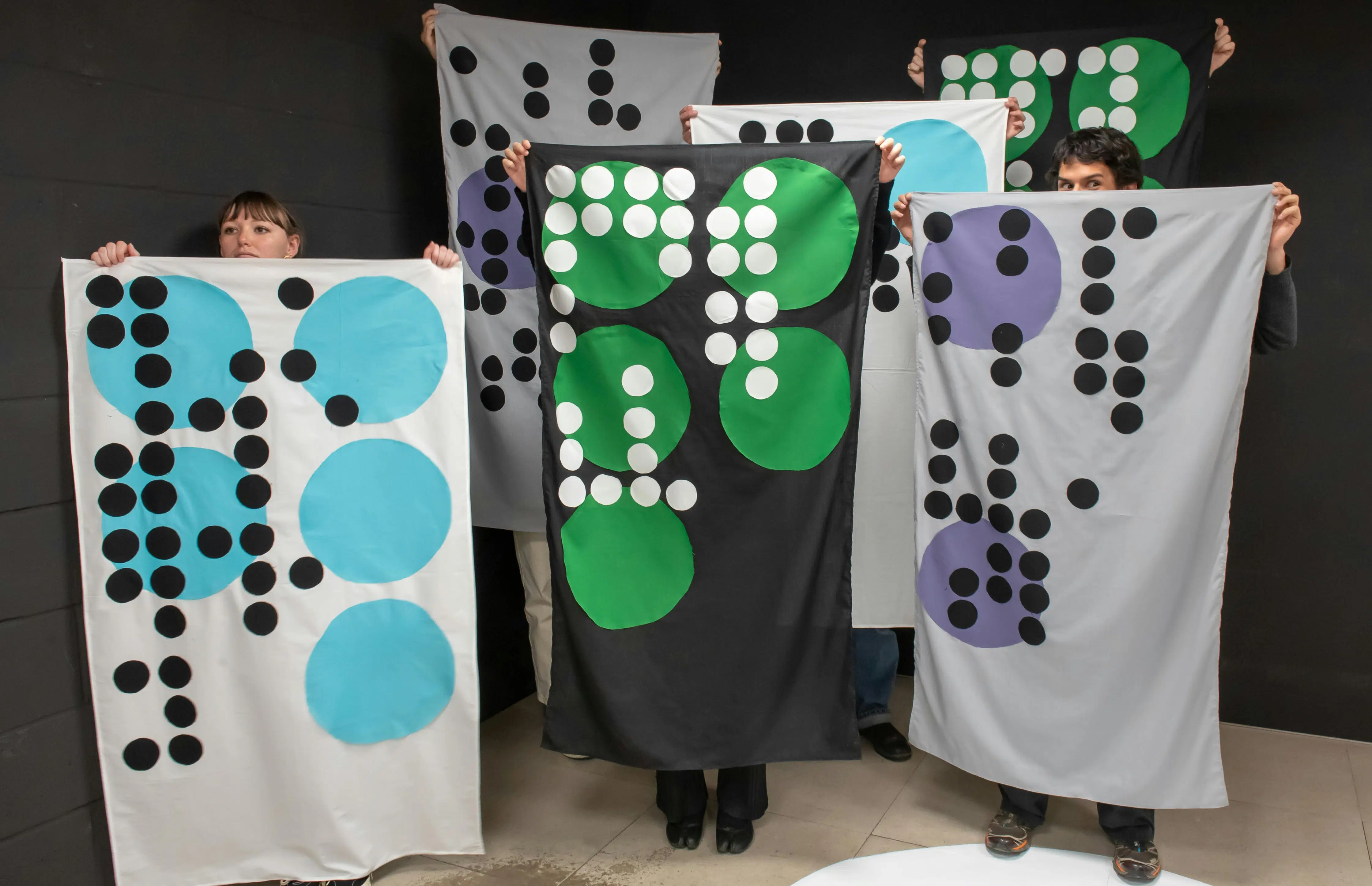
How then are you Inspiring the youngsters that are coming in to Accept & Proceed? Do you even feel that you need to inspire them, because of the work you guys are doing is inspirational at its core, or do you guys have to really kind of drive that inspiration through them consistently?
It definitely requires constant attention. I was thinking recently… we've been working on our five-year plan, and if I think back to the way that we operated five years ago, there are clearly projects that we wouldn't want to do now, and there's certainly ways that we were running those projects that seem naïve – because it was five years ago. And I think the company is always at the top of its game, but I think it's always at the most naïve point that it's ever going to be, if it is an organisation of learning and evolution. So I’ll look back in five years from now and cringe at the things that we are doing now – I'll be like, “What were we thinking?”. But right now, I'm like, “We're top of our game,” because we're being inclusive, and we're really thinking about our future as a group. So I just wanted to kind of start with that kind of awareness around the fact that you need to evolve, but you need to evolve with the awareness that it is an iterative process just like the design process.
We started a few things over the last few years that have really helped. We began with having a living business plan: the living business plan is a plan that sits alongside our more traditional business plan, and it's in the ecosystem of elements that all coexist. And I kind of see them as themes that mean that when there’s bumps in the road where you suddenly need to really look at the pipeline, or there's concerns because of a pandemic or any of these things that seem to be affecting us these days, you don't forget what you traditionally stood for.
The first year that we had a living business plan, it was co-defined by the entire team and came through conversations between the entire team, and we had things like ‘love’ and ‘death’. Death is an important part of nature: to recognise that death creates space for new life and to recognise that certain relationships must die, and that's okay: they should be honoured, they should be thanked, and hospiced – in the kindest way – out of existence. But you should recognise that moment, and move on. That gives you an agency around the clients you might be working with, or even people that you're working with in partnership, or within the company.
There were nine key elements within our first living business plan and they've been whittled down over the last three years just to three key elements. But we co-define them every year. Last year, we went away as a team and we stayed for three days in nature in the north of England. And we spent time together where computers were shut and there was no commercial work going on, and we really sat and looked at the company and decided where we come from, thought about how that should inform the future, and defined our next 12 months. And that's something that we repeated this spring.
I found those are really powerful moments to be very authentically creating this thing together. So, young designers coming in recognise that they have an incredible opportunity to be connected to the wider whole and a responsibility to be pushing that thing forward as much as anybody else. Whether you're a junior designer or the CEO, you will share in this kind of organism that we're pushing forward together.
There are various different things that we do in addition to that: I really like to socialise quite a lot. We like to inspire ourselves quite a lot by going out to consume culture in different ways – or ‘absorb’, I should say, not ‘consume’ but just kind of allow ourselves to sort of process what's happening in the world and see how it will inform our work. And then a lot of just spending time together as real people in a real world to go and create positive impact. These are all things that contribute towards culture.
It goes up and down: I'm not gonna say that every single month we're just on fire internally around our mission. I think it requires constant attention and consideration and nurturing – it's like a flower that you need to look after, because it's very precious. So it requires constant attention, and that's the thing about culture, within organisations: I think that they're sometimes sort of intangible as to why it's working or why it's not. We can all stand in a company sometimes and just know that it's working, but it's not because of any one reason – it just feels like that's the season or the moment of a positive, galvanised team. But there are certain handrails that you can put in place to try and encourage those circumstances to emerge.
Culture can change so quickly – you just need one or two people to get involved, and they can change or shift their culture completely. Do you guys have a strict process that you guys adhere to keep culture in place, or is it just kind of ‘go with it and see what happens’?
We have an annual calendar. So, starting with our annual kickoff, where we take time out, usually two to three days, often doing fun things as well as more kind of nuts and bolts of defining our future.
We encourage, as much as possible, a culture of looking after each other, because in a company of any size really, but certainly in a company that's growing, you will have groups that come together for certain projects or groups that comes together because they live together, or live close together, and there's all of these kind of little clusters of people that we encourage to support each other. Then we do have a process of one-to-one check-ins – So, we do have a form of organisational structure that has certain line managers and things like that throughout the organisation, but we also try to be devolved as much as possible: we’re kind of a centre-outwards structured organisation. Currently one of our junior designers has monthly check-ins with our MD just because they're really interested in having a vantage point on where we're going, and those are incredibly rewarding sessions for both people. So I suppose, wherever we can, breaking down the illusion of hierarchy and really building a culture of supporting each other individually and as a team, and yes, having annual events that bring us together to have the discussions that we need to in order to be able to push things forward and just have a check-in.
And then there’s moments where we just might want to talk as a team about certain decisions that are getting made. I'm very proud of that: those key moments in your company's path where you can make those key decisions together, rather than individuals just making a decision because of speed, or because they feel it's their right.
All of this goes together. I hope for us to be very conscientious around maintaining culture, but it's an ongoing challenge for anyone who's running an agency or any company really.
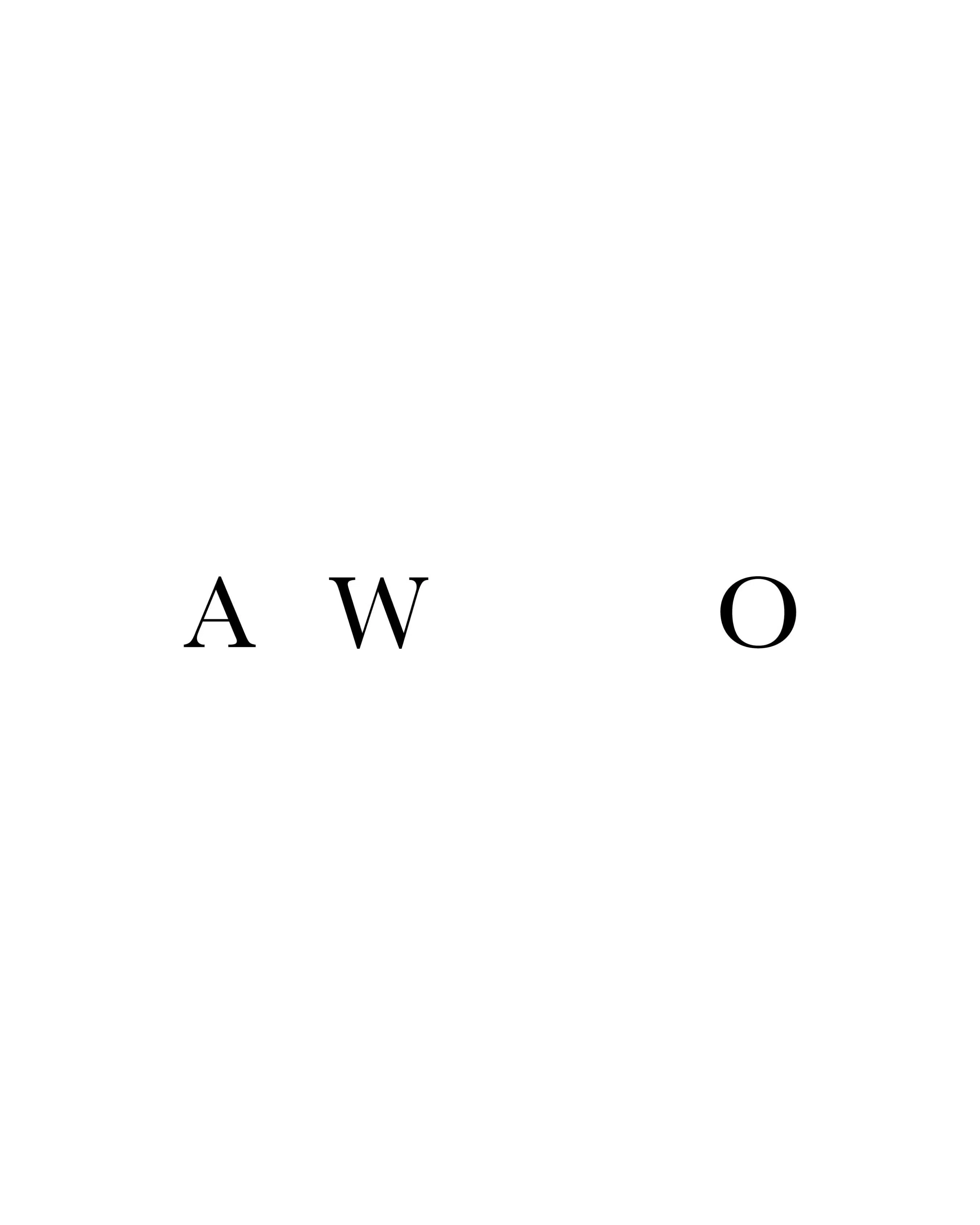
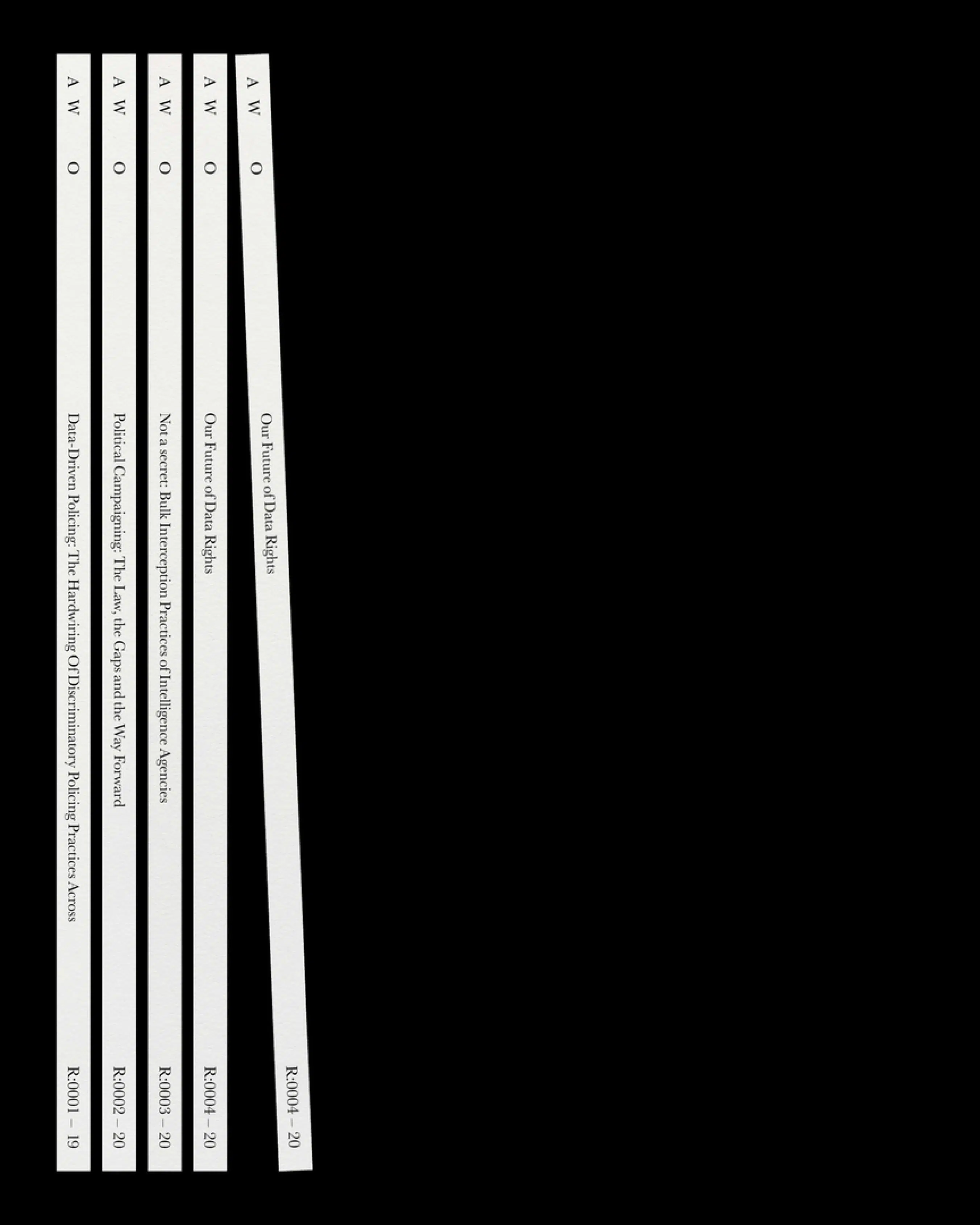
That’s a nice position to be in: where you are able to select the clients or partnerships who align to your business’s mission. I don’t think there’s a huge amount of studios currently that are fortunate enough to be in that position. Would you say that that’s your current role in Accept & Proceed: that you are actively the right clients and partnerships for the business?
It's a group role. Partnership – as we call it, rather than new business – is something that has been pretty successfully devolved. Everyone in the company has some form of responsibility around it, whether it be spotting an organisation that we think is really interesting, bringing it into the studio to discuss, or actually reaching out directly, or running new business meetings or partnership meetings – these are things that a lot of people within the company have responsibility for, if they are interested in that area of evolving their role.
It's an interesting point around clients: yes, we have key sectors: we would love to help innovation that is positive for the planet to scale, and we have a track record of being able to create branding communications that scale companies really, really effectively and innovations really, really effectively. But there's this sort of flip side that we're seeing here, around an interesting part of the conversation that came up when we discussed that opportunity as a team: the fact that you cannot change what you do not engage with. What might be perceived to be an organisation that is not aligned with your values could become one – if they're committed and if you have access to the changemakers within the organisation, the combination of the CEO and the CMO. If you're working directly with them on a strategy that is then going to be rolled out and deployed throughout an entire company, you can make serious change – and more impactful change – to companies that are perceived to be some of the ‘worst’ on the planet.
Would you not rather have a positive effect with one of the ‘baddies’, if you like, in order to be able to really prove this position of ‘design for the future’; really prove this position of having a positive impact in the world? That's where the most work is needed. We haven't had that decision to make very often, but it is an interesting thing to think about. We're all bound in systems that are fraught with issues. There's not really any clean money on the planet. It's all come through systems, even if it's coming through what seems to be a really worthy organisation that you're working with, it's naïve to think that everything isn't interconnected with each other. I think understanding that everything is interconnected, and really understanding that you can have a massive effect by working in that way, is a very important position to hold. I don't think it's a moral argument that the design agencies should be holding. I think it's more of a survival argument that we should be talking about, really: corporations that are part of that 78%, I mentioned in opening that need to change because they are unviable, because of the way that they're operating, need to evolve quick. So any CEO or CMO working within those organisations should come and speak to me – or maybe come and speak to you – because they need to evolve and they need to evolve quickly. There is an existential threat to their organisation that we can help with.
So I suppose I try to have the broadest perspective on this idea of companies that are worthy or not. I try not to be naïve around that. I'm pretty much open to conversations with anyone, but I think the question is, Where can you have access to those that are ready to change?
There's this idea of the Bellman curve, which means you need access to 3.5% of any community in order to have that kind of exponential growth effect. So if you think of that 78% of companies that need to evolve, you don't need all of them – we don't want to work with 78% of the companies on the NASDAQ, you just want to work with the 3.5%, which are going to have that cascading effect over time. That's the way we're thinking about our partnerships.
Media companies are kind of like the perceptual mechanisms which are converting the data and perception into memes and usable chunks for society to be able to understand.
It's a nice way to look at it, and I think it goes back to your earlier statement about making the smaller changes – the micro changes that have a greater impact on the macro. This might be a loaded question for you, but which are the sectors that you think have the highest risk and need immediate change for the future?
Going back to this idea of a planetary body, I like the metaphor of thinking of our planet as an interconnected singular identity. I think there's things that transcend those geographical borders. When you really think about it, there's a lot of very compelling stories that we just tell ourselves and currently, they're either in their infancy or they're just not serving us well and we need to rethink. If you think of a planet: one those geographical borders is just one of those stories that we tell ourselves. Even money itself – just a story that we tell ourselves.
I like to kind of think of those sectors as being different parts of the body. For example, an energy company is kind of like the blood circulating through our body. And a sanitation company is kind of like the liver or the kidneys that's breaking down the toxins. Media companies are kind of like the perceptual mechanisms which are converting the data and perception into memes and usable chunks for society to be able to understand. And therefore brand is a function of consciousness in this very profound way. All these different sectors are part of the body that needs help. So, I can't tell you to rush to the heart. I think it all needs to happen kind of simultaneously.
We're in this moment which I kind of compare to the moment through the 60s and 70s where you had these counterculture movements, and a lot of experiments with psychedelic drugs, and it was producing some truly enlightened business leaders. I kind of put people like Steve Jobs into that category – and I know that he's a flawed individual in some respects, and there's lots of awareness around the way that he operated, that was pretty ruthless in many ways – but I do think he was a visionary and able to think 15 to 20 years ahead of what he was actually working on in that moment. And I think at that moment, we had this kind of raising consciousness that was really happening around the globe. But the door was kind of slammed shut for various reasons on those movements.
And now what we have is that time again: I feel it's kind of like a global renaissance that we're going through, but with the amplified ability through technology to better understand ourselves, better understand, with the evolution of quantum understanding and advancement of technologies like AI, we have a deeper better understanding and potential of who and what we are.
So you kind of have this trio in my mind of advancement of technology, renaissance, but crisis – which means we literally cannot fail in this moment, otherwise we are doomed. It certainly focuses the attention! Whatever access point you have moves the dial. I don't want to pick any one sector because I would like to encourage every designer, anyone working in any particular sector, to think about where they can move the whole in the positive direction, because we all have agency in this respect.
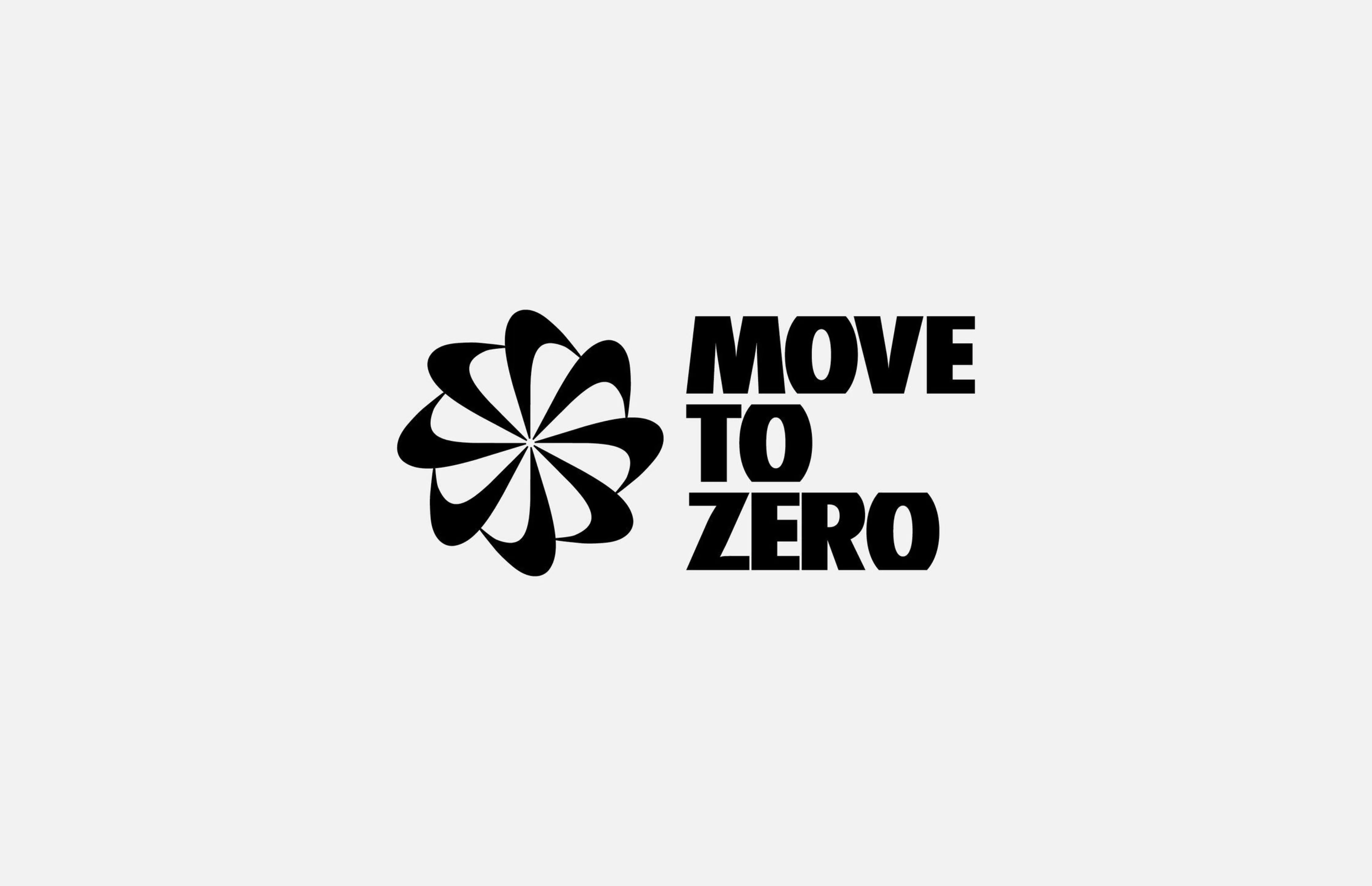
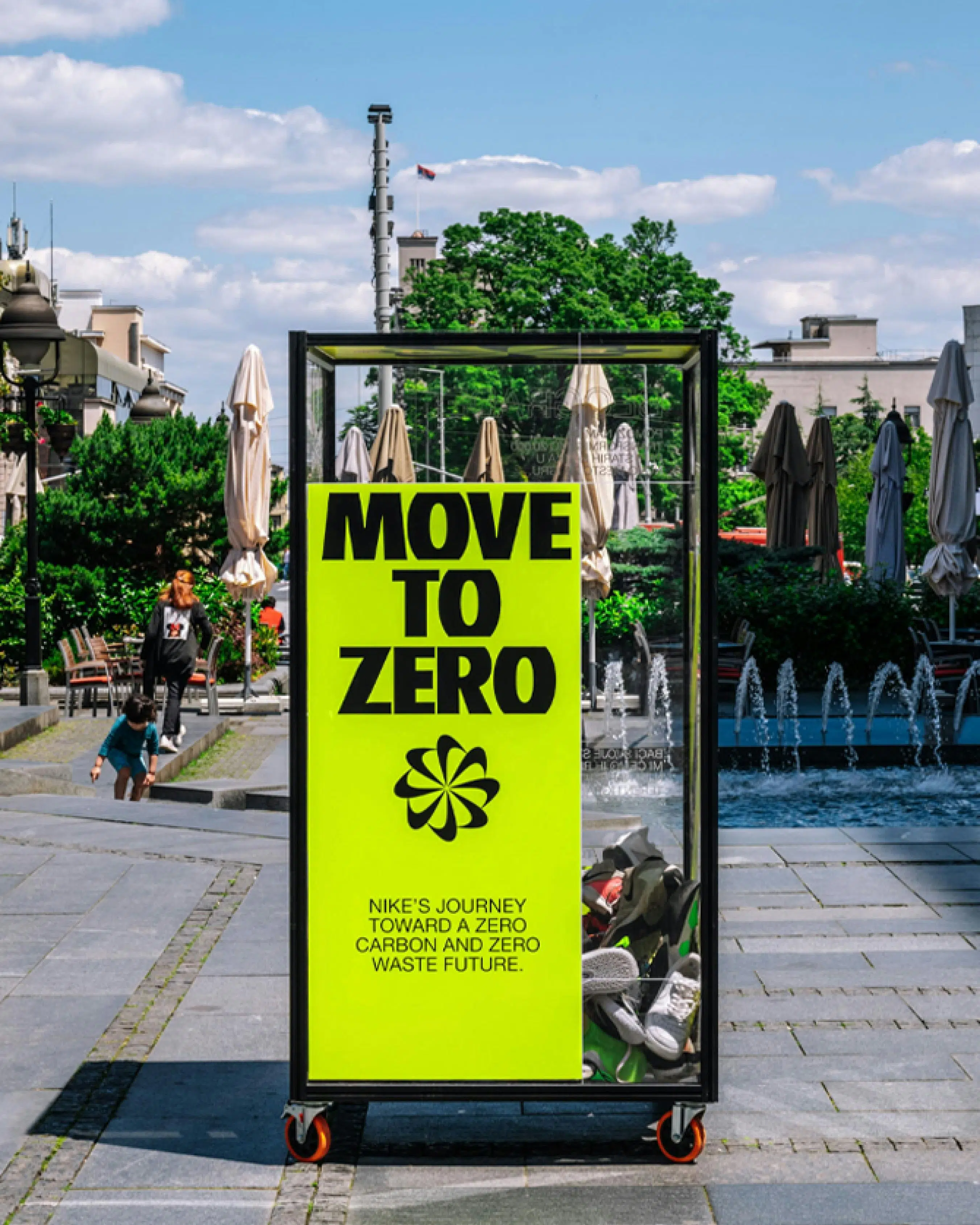
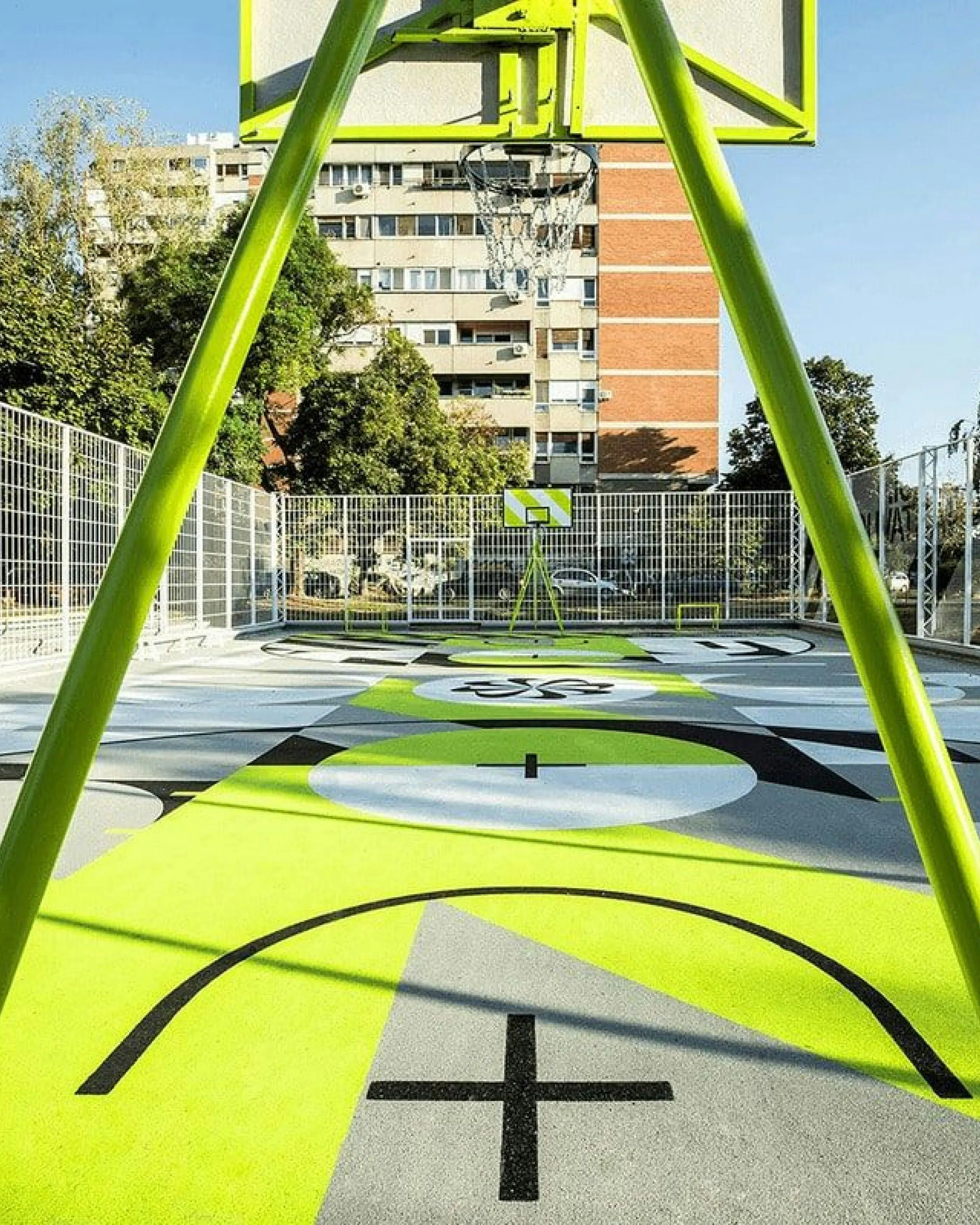
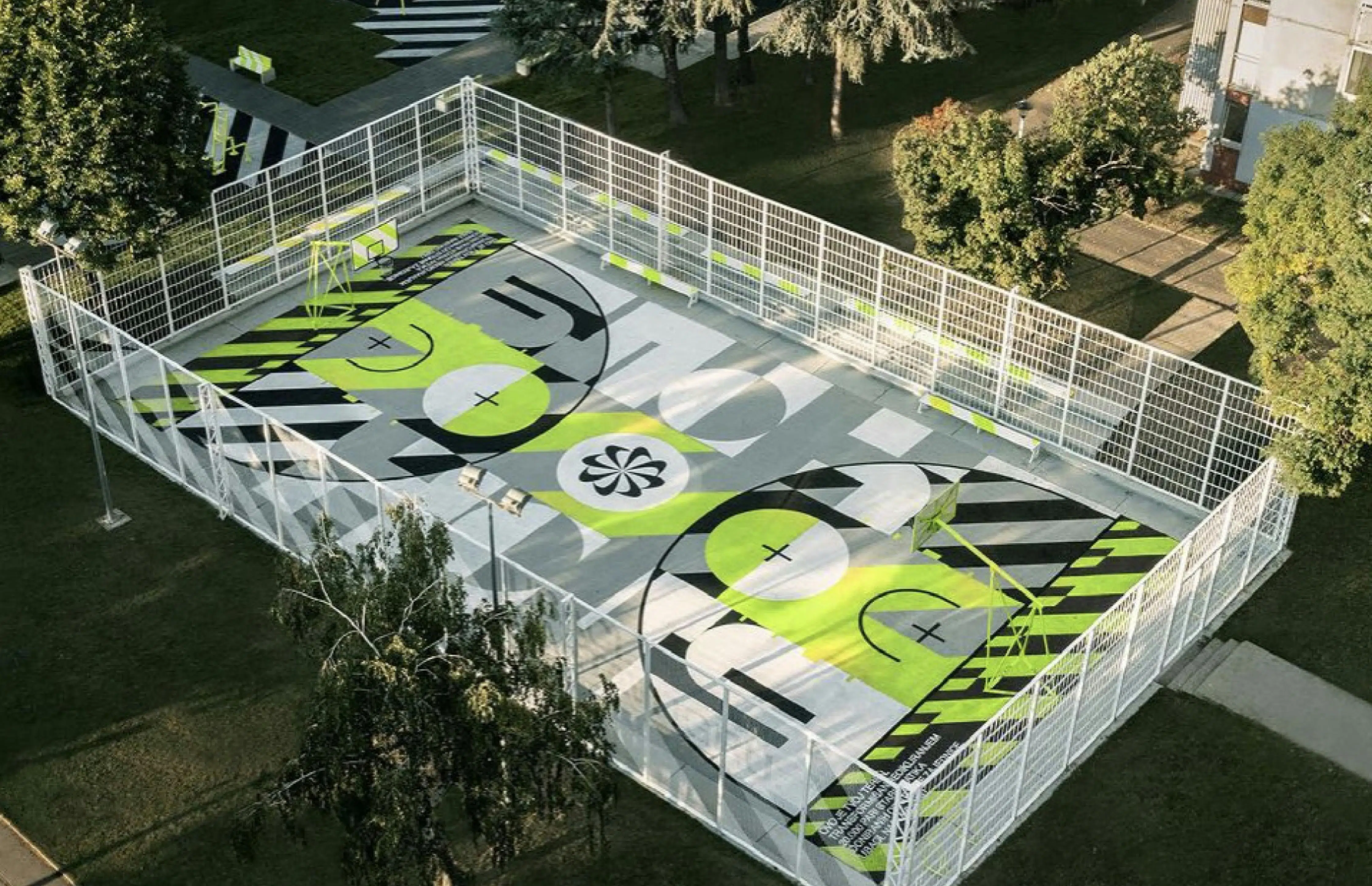
I think for me it's a matter of looking into, “Are you excited about the future? Are you scared for the future?” And that's a conversation that we've been having a lot with people outside of the studio. The conversation is steering more towards fear and people are scared for multiple reasons, because of security, or security of jobs and a multitude of all these little elements that are nearly spiralling out of control because no one's got the reins really. Would you say you’re excited for where the future is going? Or are you a little bit more scared?
I try not to operate from a place of fear and that's because it hampers the creative process on a basic level. I think that when you're in a state of anxiety and fear, it's just impossible to really live in the joy of creation. There's a contradiction in those two things that I try not to live with, but I do think that a lot of this is because we're fearful – because the systems that we were brought up in are failing. We have certain understandings of things like what it is to be a success: to be a success is to earn a certain amount of money, or to own a certain amount of things. I think reframing what success actually is is part of the journey. We need to go on in this moment. So we're sitting here, I've no idea how old your clothes are, for example, but the reflection of success should be who's got on the oldest clothes, in some respect. And I know certain parts of this is happening. But if I'm sitting here – I do not, unfortunately, have a piece of clothing, that's 20 years old – but if I'm sitting here in a top, that's 20 years old, you should be like, “Wow! That's super cool.
How did you do that?” And I should be rewarded for that. But we’re not – we wear our best clothes and that's just one tiny example of this idea of what success actually means. So I think that we've been brought up in this sort of mindset and worldview of competition. But in fact, where we need to get to is a place of cooperation, and if we can reframe what success actually looks like for organisations, if we can really start to unpick what the opportunity in this moment is, it's like no other group of humans has ever experienced. I do think that in those conversations that you're having, you should be encouraging those you're speaking to to truly accept themselves: to truly accept the organisation for what it currently is, and accept the challenge ahead of them that we now face. Because I think there's this sort of magic that comes when you see opportunity and you accept the position that you're in as a starting point of something much, much bigger and greater for the future.
I think now is the time to reimagine. It's really our moment, a society and as humanity, and as individuals and companies to really create a new world. So I'd really like to celebrate the moment that we're in, and recognise that it's a moment that no other group of humans has ever had, and really think, can we create a more beautiful world together?
And no-one can tell the future, but I guess it’s just about being optimistic and making sure that the decisions we make now will have a good impact on the future. Do you think that the future is going to get to where it needs to be?
I mean, I just don't have a crystal ball, but I do think we have to be honest with each other in these moments. So, I accept the fear, I accept the anxiety. I accept that the path will likely be rocky ahead – and I think we all need to recognise that. I suppose that one concern is that with the advancement of technology and the way that media is currently consumed at scale, it's kind of making the virtual realm more attractive in some respects to the fearful, anxious narrative of our potential future in the real world. And what we need to do is have something that kind of shocks us out of the distraction. It's a kind of war for attention that we're talking about here, and that we have a very, very big opportunity as brand designers and creators of digital content and media. These are the opportunities that we hold to be able to actually kind of bring public people back into the real world. And there has to be something in the real world that shocks us out of the path that could be travelled down, in order for us to escape.
In some ways, the new rock ‘n’ roll for younger generations has become activism and I find that really, really interesting. I was brought up in a world where music, and the appreciation of culture, and fashion– the way that youth groups, and communities, really operated was very, very different. And the identity of those groups was very, very different. And now you've got the situation where it feels like there's a bigger story – a more important story. Possibly the most exciting story that we've ever had to engage with around our future is actually the thing that we need to be able to engage with and be able to push things forward with. I don't think there's going to be a light bulb moment where it all just flicks on. It is going to be an evolution, but I do think that thing it's already happening like the world is in chaos, we're having the effects of climate change really dramatically happen around the world.
So I suppose where I sit, Rogan, on this is: we don't know what's going to happen – like I say, I've got no crystal ball. I will take responsibility for my own actions for my own frequency, if you like. My own vibration. If we must die, if we are going down the path of extinction, I want to die at a point where my vibration is the highest it can possibly be, because what comes next will feed from the energy that we leave behind. Energy doesn't go anywhere, it just changes form. So I think we have a responsibility, whether we're going down a really rocky road or whether it be utopia, just to hold ourselves in the highest sort of vibration or the highest state that we possibly can, going into that, and come what may I think that's the responsibility for each individual and human to do that for themselves and for those around them really.
All of these things can actually have an incredibly positive effect if you shift your awareness and your intention.
Have you always been a forward thinker, and someone who wants to drive change, or has that come later in your career?
It's definitely come later. I think when I was younger I was probably a bit more selfish, or unaware, or a combination of both those things. I always loved the potential of design, and I always loved the creative sector, but I didn't really recognise the detrimental effects that it had on the world. And I think there was this sort of, raising my awareness, probably with a decline in my selfishness as I mature and probably having kids, started thinking about future generations in a more profound way. And I think the combination of those things like the recognition of – albeit well-intended – the detrimental effects that the work we've done over the years, have had on the planet… Along with this recognition that if you've had that effect, you can now take responsibility and turn it round.
You can use whatever skills you've got, whatever opportunities you've got, whatever connections you've got, the projects that are coming your way, the platforms you're part of – all of these things can actually have an incredibly positive effect if you shift your awareness and your intention. So I think there was definitely a point where I had a raise in awareness and it shifted my intention – and therefore attention – and I'd say that was probably bubbling up for the last 10 years or so. But I think it's become ever more present in the last sort of five or six.
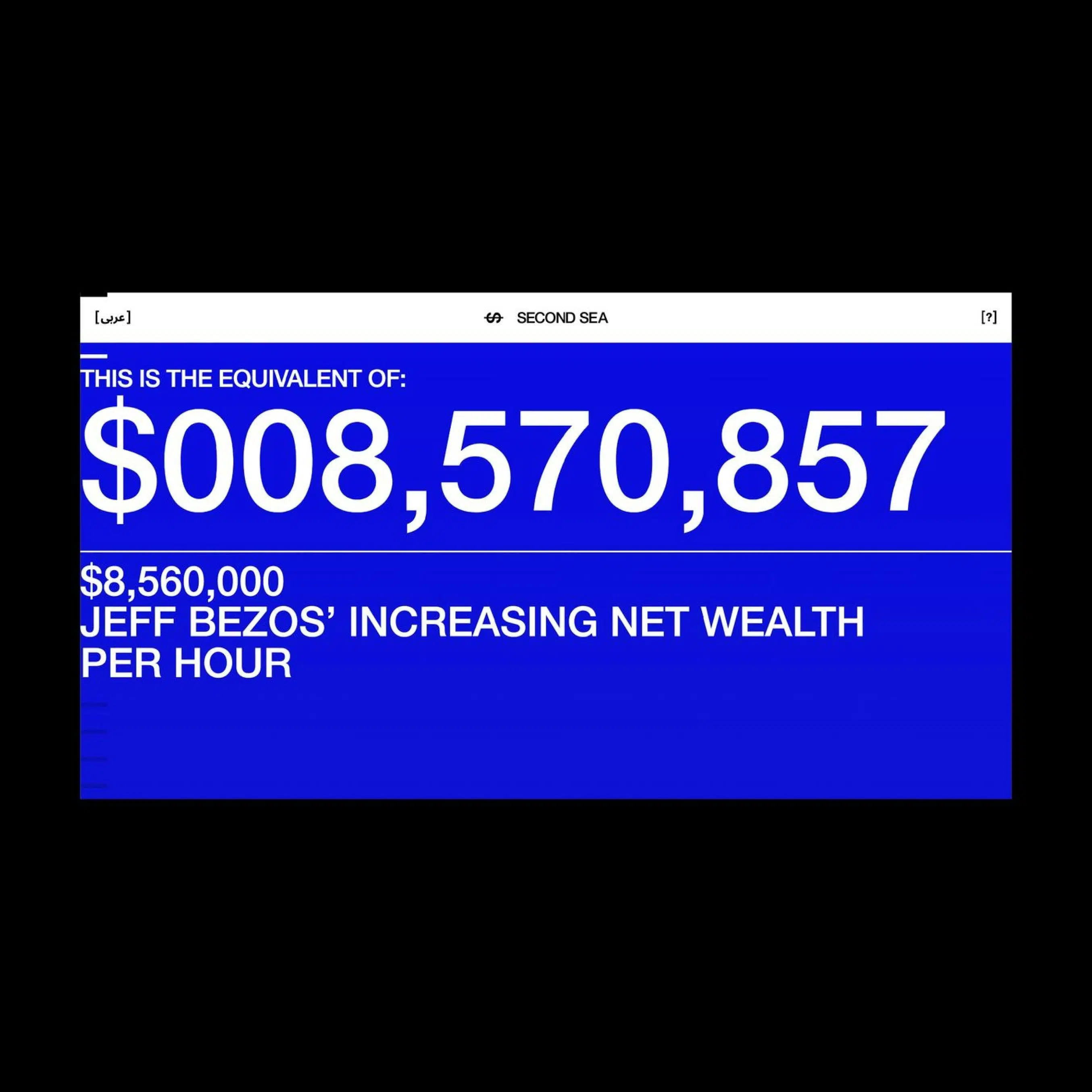
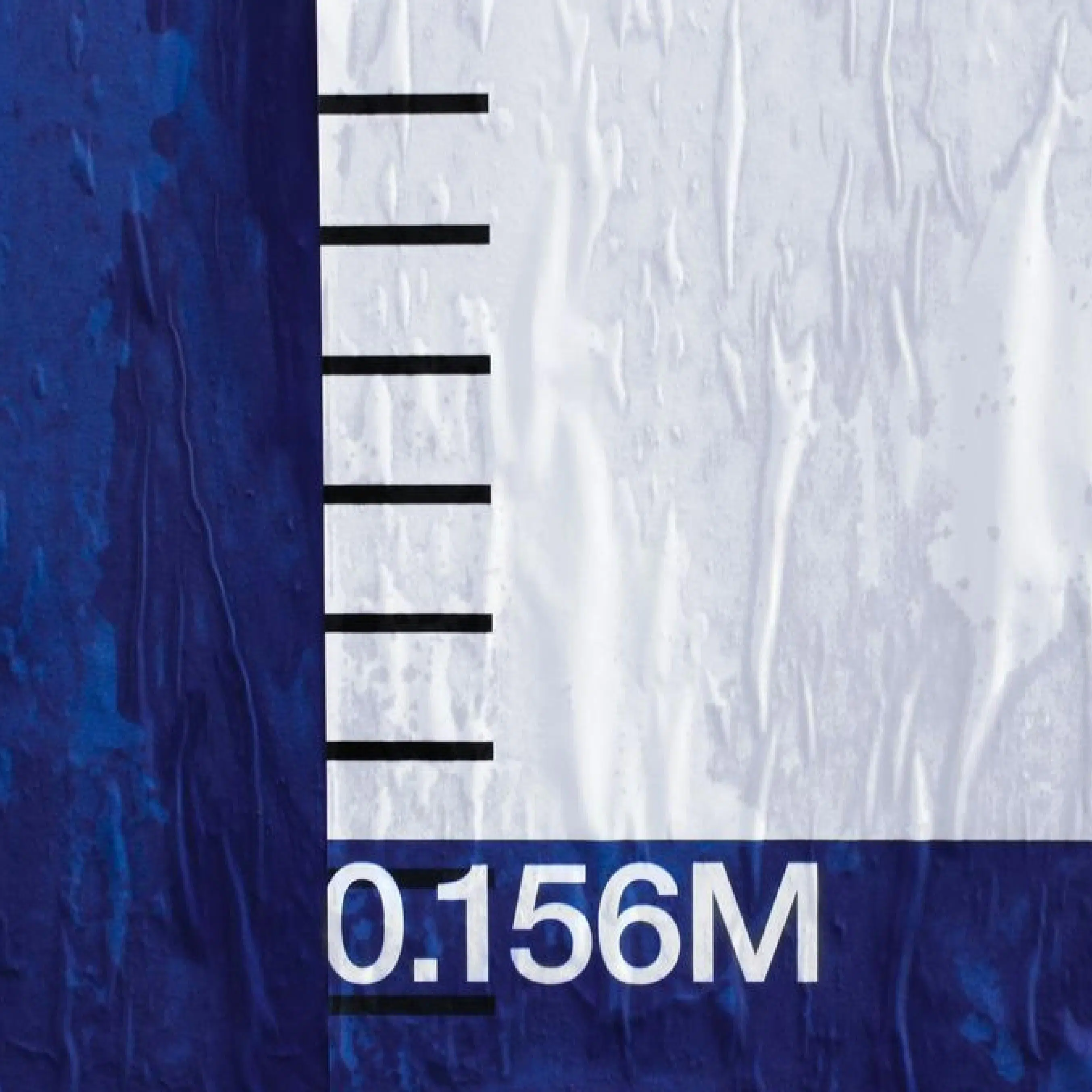
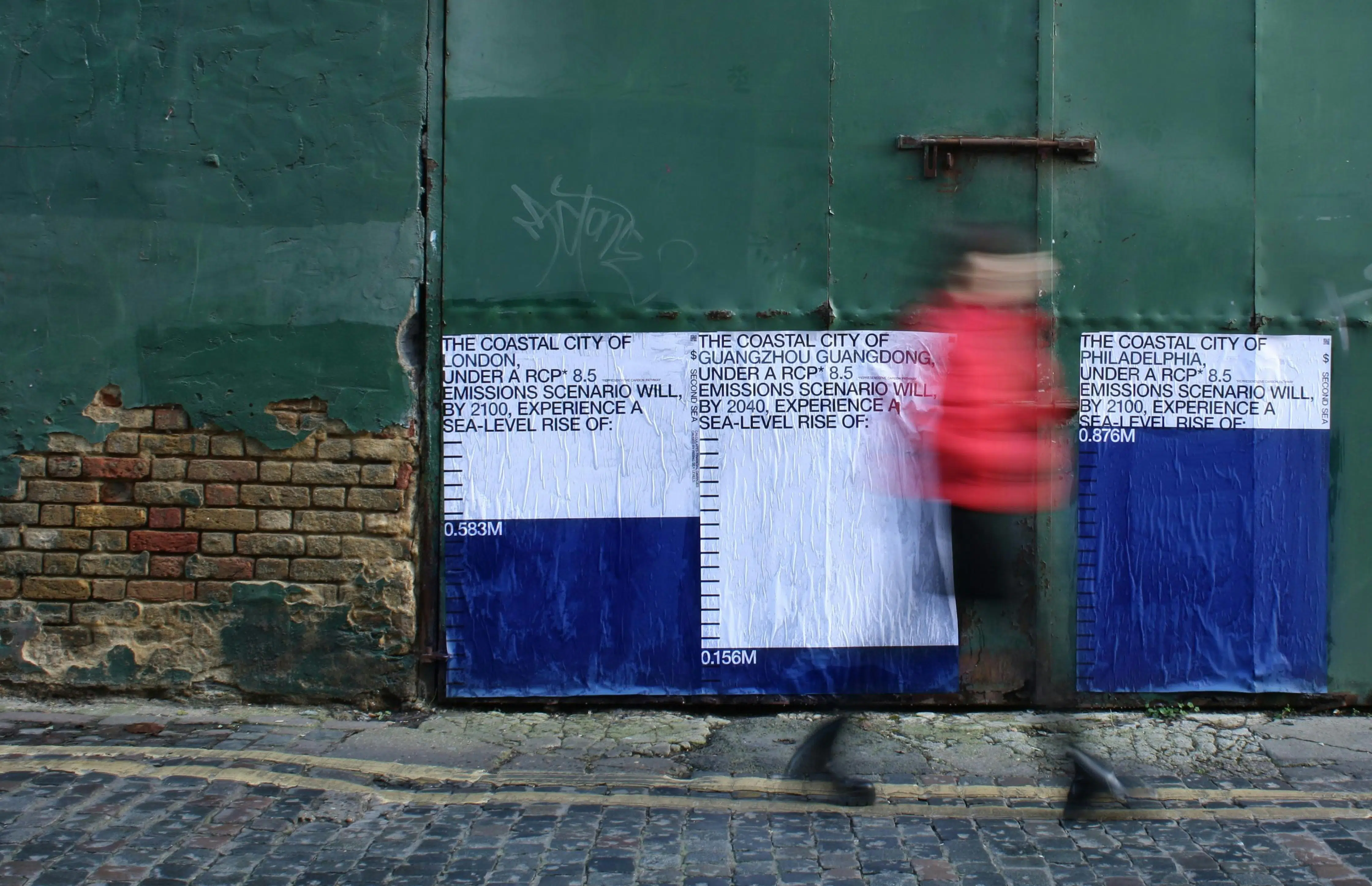
It seems the wheels are turning, and things are changing. But for me, it will also go down to key principles and ethical considerations. Do you have any guiding principles?
Yes. I think balance is a guiding principle for the way that I run my life, and it's got multiple meanings for me, that word. I think quite early in my career – I consider myself to be entrepreneurial, but I didn't want to be an entrepreneur that was so focused on a mission that it would be to the detriment of every other area of their life. And we all know how that ends up – we have very good examples of those individuals presently. And they achieve a lot – they're incredibly productive – but I think the effect, the kind of vibration they carry, if we go back to that idea, can be very disruptive to the planet. So I think that for me balance is something that I wanted to commit to.
I want to make sure that I'm looking after those I love and I'm nurturing the relationships that nourish me. And then, work is very, very important to me, of course but there's ebbs and flows: I've got a stint of travel coming up, which will mean I'm away from my family and working very hard. But I will go through a period of rebalancing after that, and I try and ebb and flow through the year and understand that there's seasons not just in our weather systems but also in your life and throughout the year and the workflow, and all of these different things. Agencies have seasons too, and that can change on an annual basis. So, balance is something I try and hold very dear to myself.
I committed really to use the skills that have always seemed to be present in my life of being a catalyst of some sort. I've always been quite good at bringing people together, whether it be connections for a party or an event or a project or a design studio. This is a skill that I seem to have, and I'm quite comfortable with, and I want to use that skill wisely to inspire the world in some way. So I think that's a principle, if you like: to use the network and the things I'm connected to to lead in a really, really positive way. I think that there's this sort of responsibility for us to think about the roles that we have as leaders in creating positive, cascading effects for the future, and I suppose that's a principle by which I wish to live as well.
How do you find the balance between friends, and work, and all the other initiatives that you’re currently running?
I do think I have a mind that enjoys having lots of things going on at once. I'm constantly spinning plates – and the negative of that is that sometimes I'm not able to give one of the plates the attention it really needs and deserves, but I am very comfortable with multiple plates spinning. I have been reflecting recently that I have got a busy home life, but that busy home life offsets the busy work life. So in a way they do balance each other out, even though it's all busyness: the home life is a kind of balancer of the busy work life.
But equally there's certain practices and rituals that I just find very helpful. I'm very interested in breathwork. I practiced meditation for many years, but I found there's something around breathwork that seems to fast track a very profound meditation. I use breathwork to calm myself down before meetings or important moments in my life, and the ability for breath to be able to change your feelings is just profound – that's a superpower in itself. But I also love movement, and I got sort of addicted, should we say, to hand balancing probably four or five years ago now, and that's evolved into just movement. There's something around the way I practise now, which is sort of falling in, and out of handstands, but moving through a sort of animal-like flow in my sessions that just brings me into a flow state, and I try and live my life like that, really like coming into a conversation like this being open and allowing it to flow.
I think that's really the way that most humans should try and operate if they can: so I try and live in that state of flow as much as I can. If you do that, I think you can find boundless energy and actually it does feel balanced because you're not overwhelmed by what's about to come or what's just happened, you're sort of living in that moment. So that's something I am a lifelong committed sort of student of, I suppose – mindful practice and living in the present moments – but I'm not pretending I'm where I would like to be with it and it is a struggle sometimes but it's something that helps me a lot.
Meditation and breathwork is something that I've learned a lot about in the past, specifically because we've got a client that we helped do branding, and that we’re currently developing an app for that’s in breathwork, so we’ve done a lot of research and we’re still continuously doing a lot of research and through that research and reading books I’ve found a lot of benefits from meditation and breathwork. I think that my issue is sticking to the practice: I tend to kind of stop when things are good, and fall back into my old habits, which is really just the opposite of what I’m meant to be doing!
Yeah. I agree. I mean, discipline is key for it. It has an accumulative effect. The more you do things, the more regularly… if you're doing it when you feel great, it will have an accumulative effect and a compound effect over time. So yeah, I just think building those moments into your daily practice are very necessary and I think it's through those kinds of practices that you start to see that we are more than sometimes we are told.
We are not individual egos in isolation walking this planet, we are something that's part of something much more special just being able to truly feel the wonders of the universe, which are available to us in any given moment, but we’re sort of hampered by the societal structures and systems within which we live that kind of overwhelm us. But you can break through that: you can recognise that they are, in a lot of cases, kind of illusionary – and you have access to something far greater. And that I think all humans kind of possess a sort of clairvoyant capacity: a sort of expanded awareness capacity and it's something I love.
Exploring access to a shared consciousness. I love the idea of this wisdom that can come to you, that you didn't learn through your own life, but you've sort of downloaded in those moments of kind of serene calm that you can access through breathwork or meditation. I think that's next-level humans that are living in that state. And that's what's fascinating to me and I will continue to explore for the rest of my life.
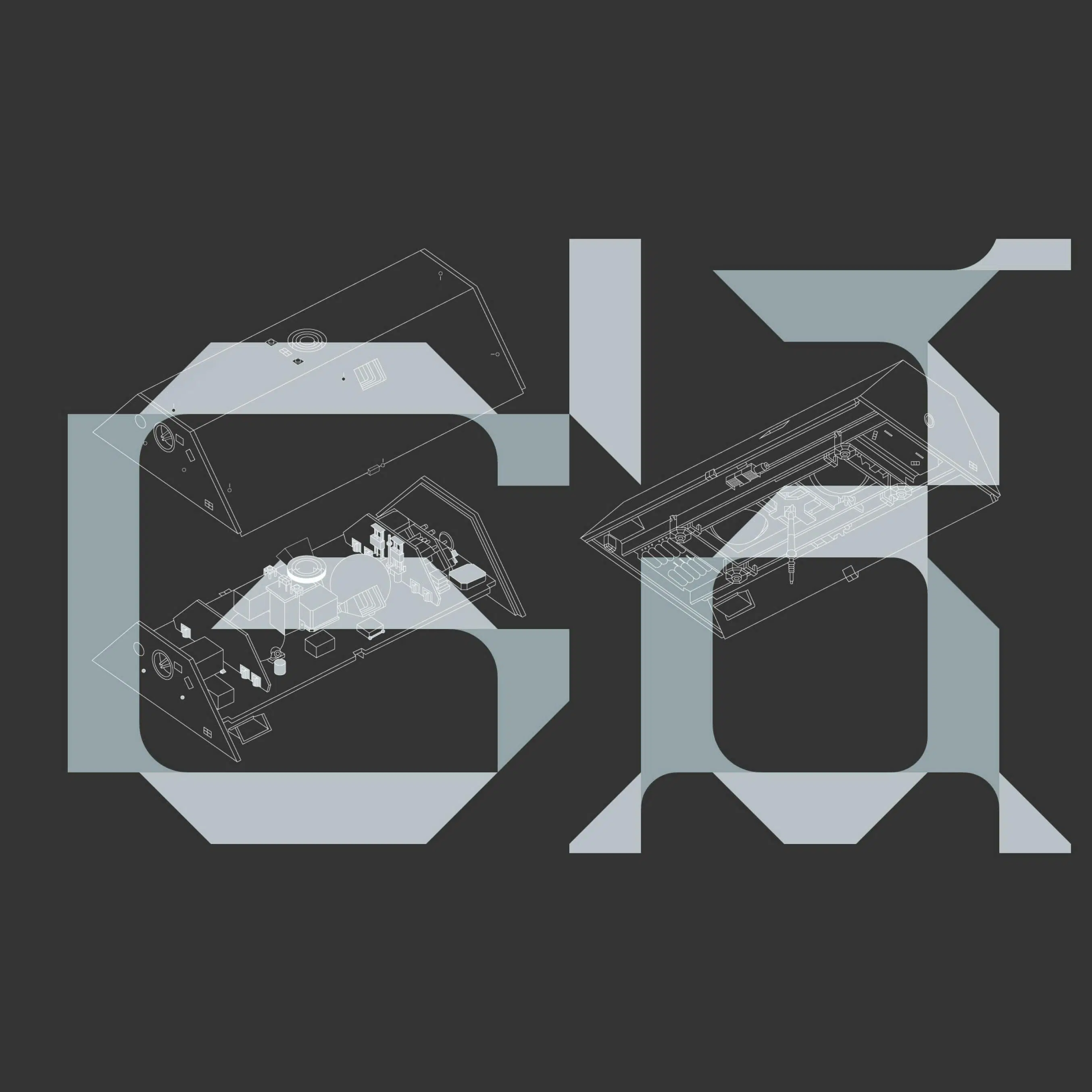
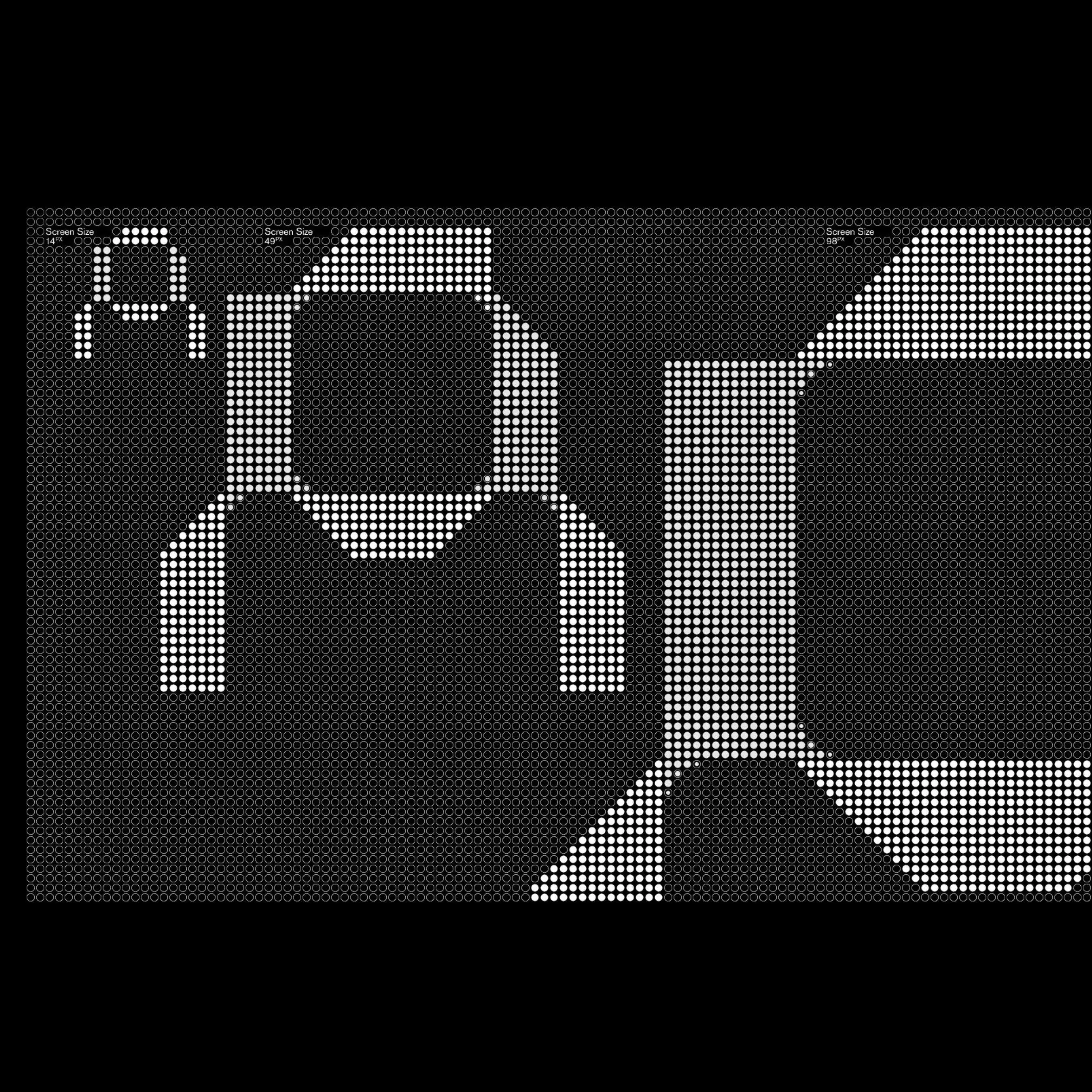
We’re nearing the end of our conversations and I feel like I’ve asked you a lot of questions. Maybe there’s something that you want to ask or raise before we sign off today?
Yeah, I'm really interested to hear where you're at – what principles drive you, because we're one, basically. I'd love to hear what's working for you and what you feel good about for the future.
Yeah, I think for us, Dash is a young business, we are about five years old this year, so we’re still really in the nurturing stage from a business standpoint. I think one of our biggest principles is continuously learning, and that happens across many areas of the business: internally, learning processes or new skills, teaching other individuals in the business. I think it’s something that everyone within Dash really adheres to and really loves. Another way is always pushing quality work: I think we’re always trying to deliver quality work, I think we’re always trying to deliver to the best of our ability, to deliver the best-quality work that we can. Another one would be bringing empathy into all decision-making: I think that’s a real big one in the studio, and something we all value.
We’ve got quite a few guiding values within the business, but I’ll pinpoint a couple: I think the first one is “Be the person your dog thinks you are.” That’s something that one of our co-founders said in our first strategy session, and it really resonated with all the partners at the time. Another one is “Leave your ego at the door.” For us that’s all about being humble: everyone is here, everyone wants to help, and everyone is learning from each other.
To answer your question about the future, and what excites me about the future – I think I’m a very optimistic person, so I am looking forward to it. Obviously there are concerns, but I think if everyone plays their part and does small things to make a bigger change, we are likely to have a brighter future, and I think it excites me. I think where technology is moving at the moment, that excites me. I’m optimistic, and I’m excited for it.
I’m also really excited for this series: I think there’s a huge opportunity for me to have conversations with founders and creatives and thought-provoking leaders, and have open, candid conversations just like we’ve had today. I value them, I get a lot of enjoyment out of them, and I hope everyone else does, too. I’m continuously looking for content like this, and hopefully peeling back the layers and showing what happens behind closed doors can be beneficial for a few people. So thank you David – I really do appreciate your time, and I’ve loved our conversation, so thank you so much for joining us today on the series.
Nice. I think you're right to do it: our network and our community actually supercharges us, and it would be crazy not to use technology and conversational frameworks in order to be able to amplify your understanding of yourself and open up these types of conversations. So kudos to you for doing this, and thank you. It's a privilege to be speaking today and “Be the person your dog thinks you are” – that will sit with me for the rest of the week. I like it very much.
If you’re eager to dive deeper into the world of digital design, and catch up on our conversations with inspiring creatives, just search for “Behind The Design” on your favourite podcast platform.
Each poster is a tribute to the individual we interview, incorporating elements from their conversation into the artwork and designed to encapsulate their distinct style.
